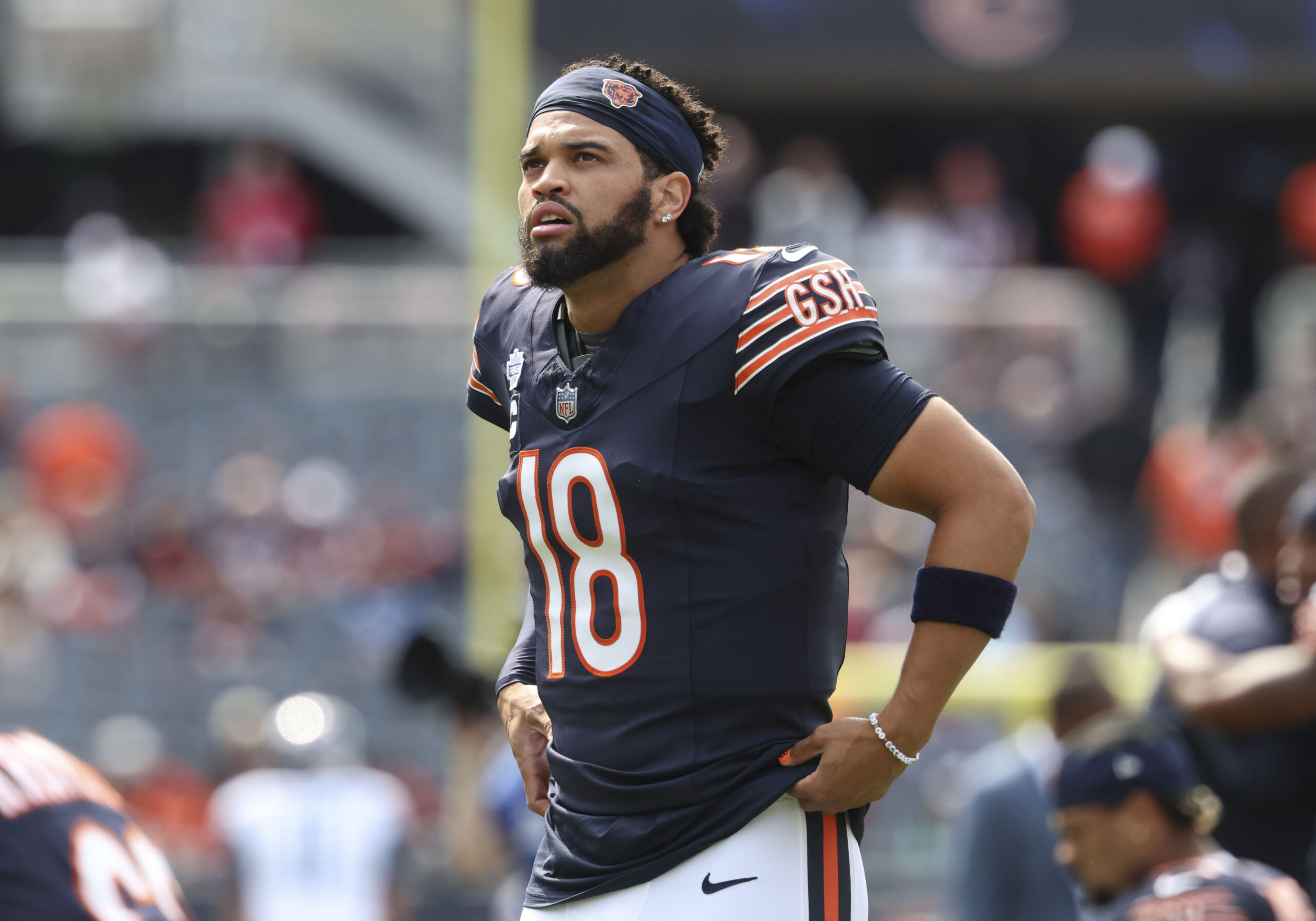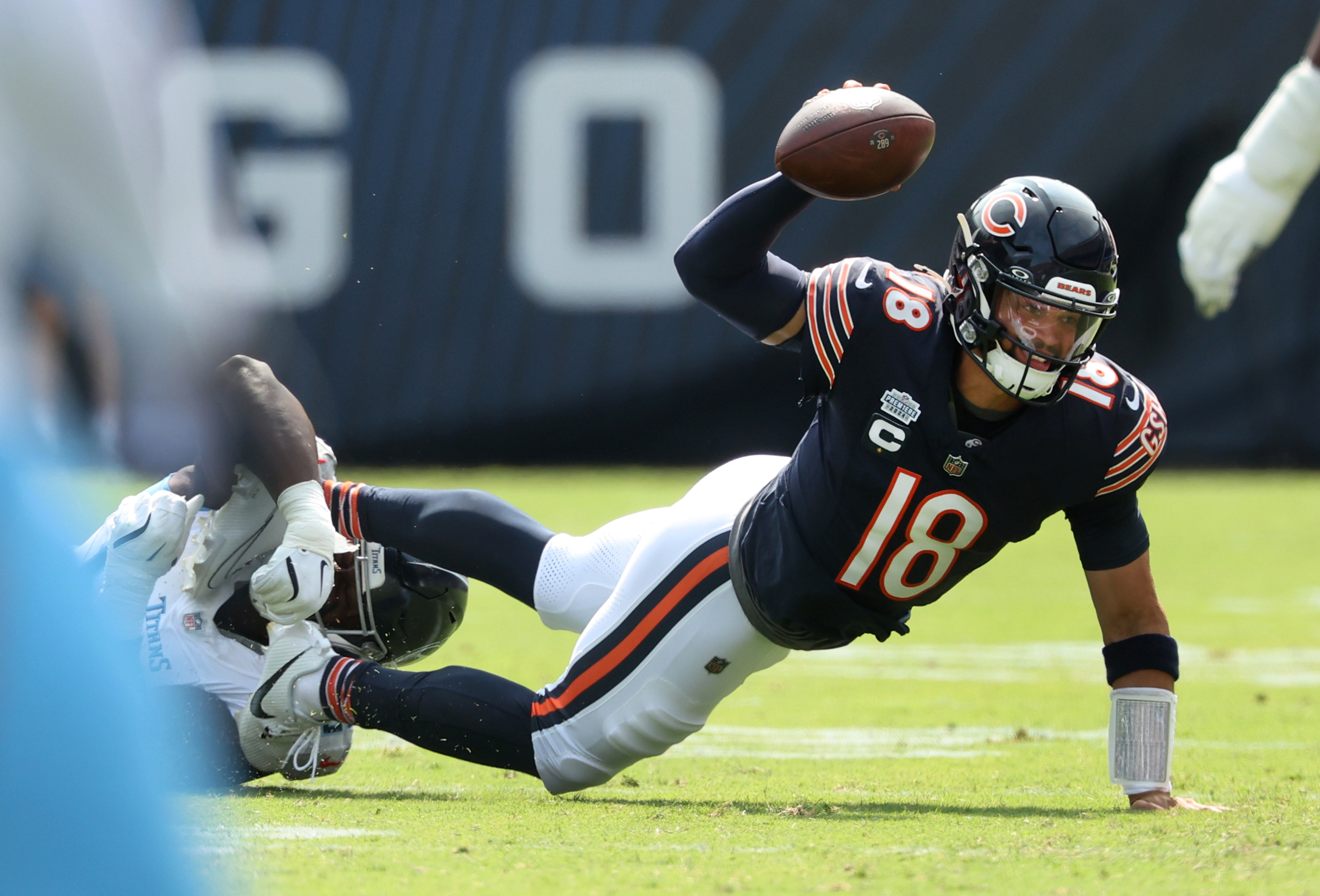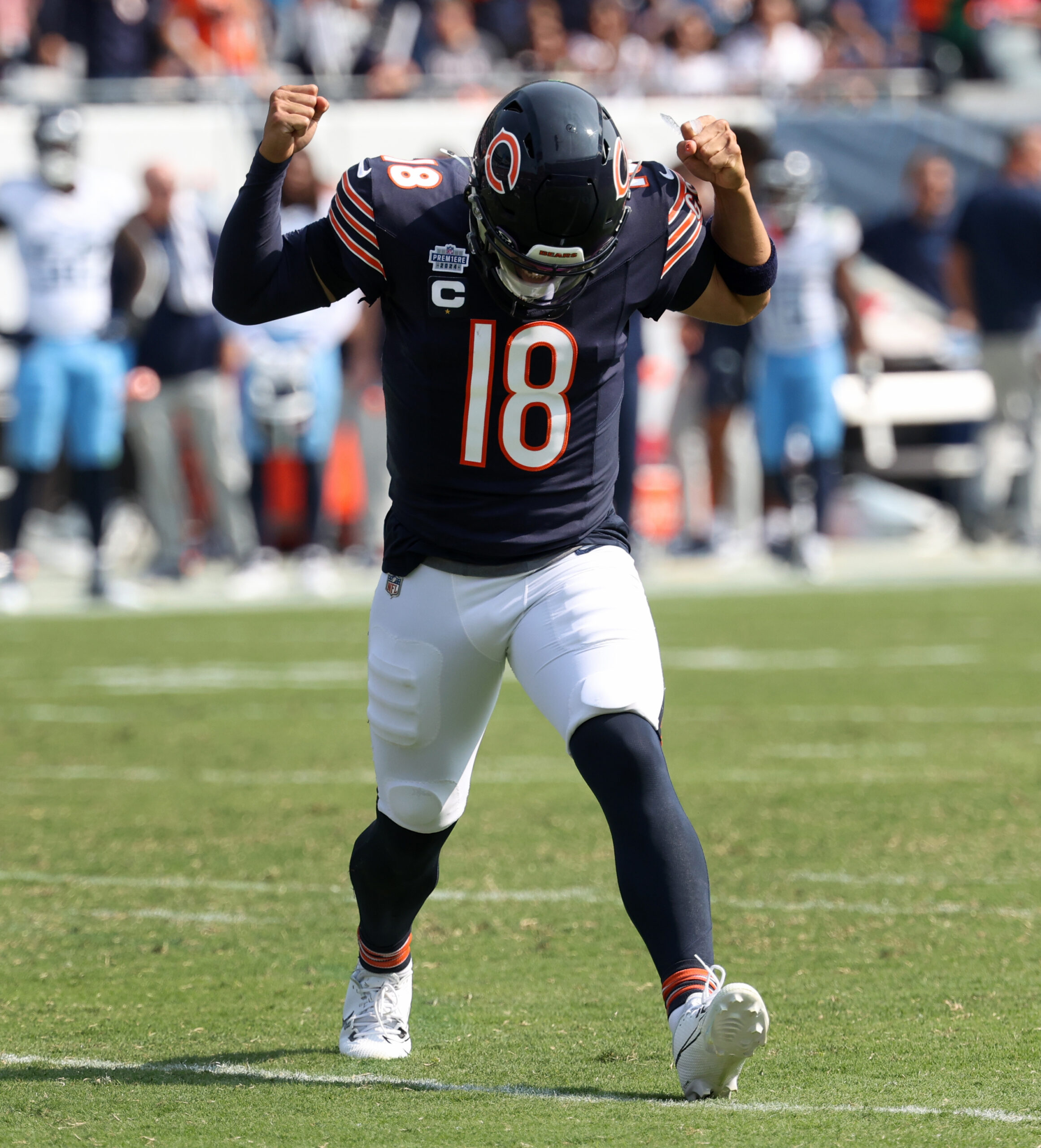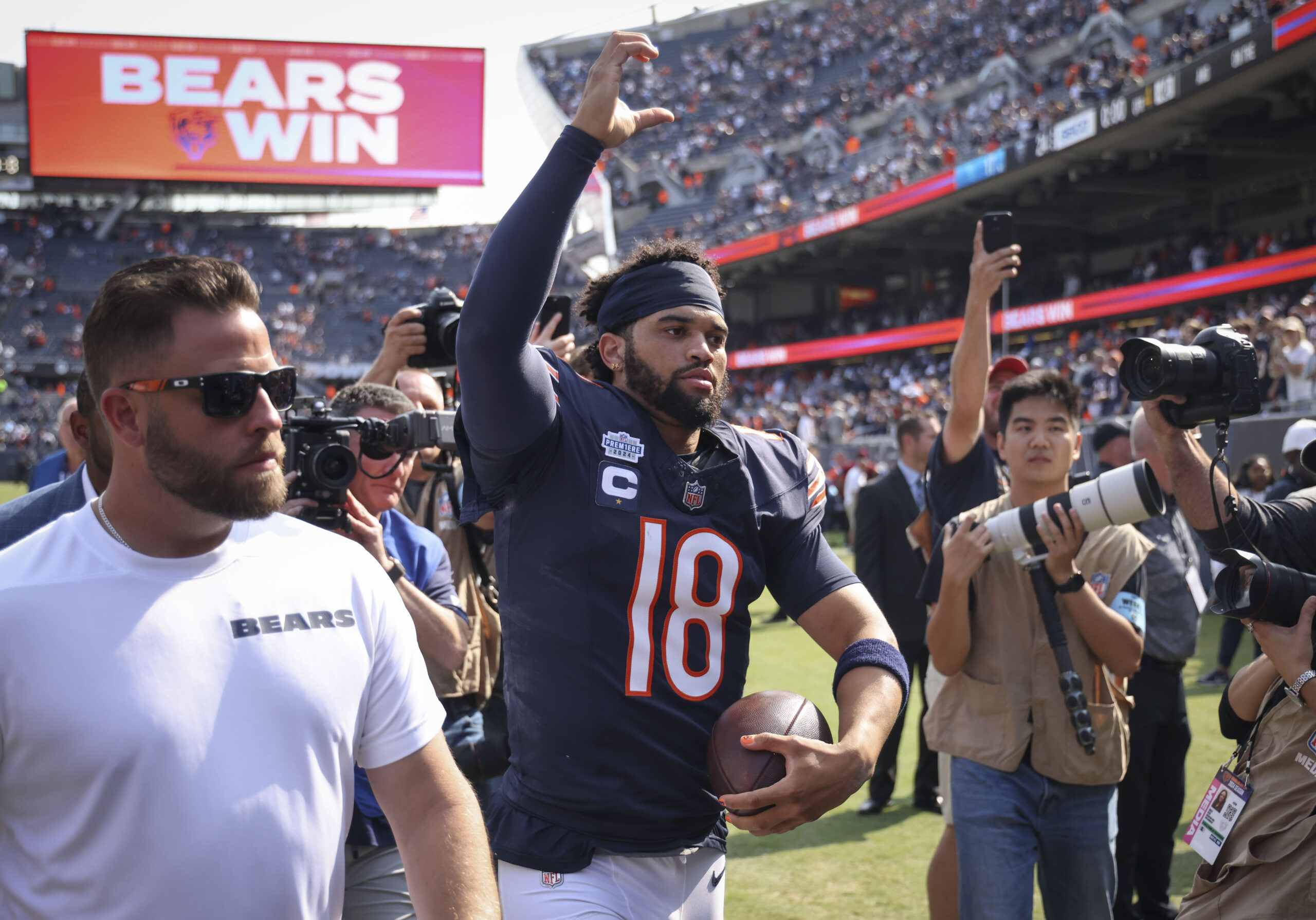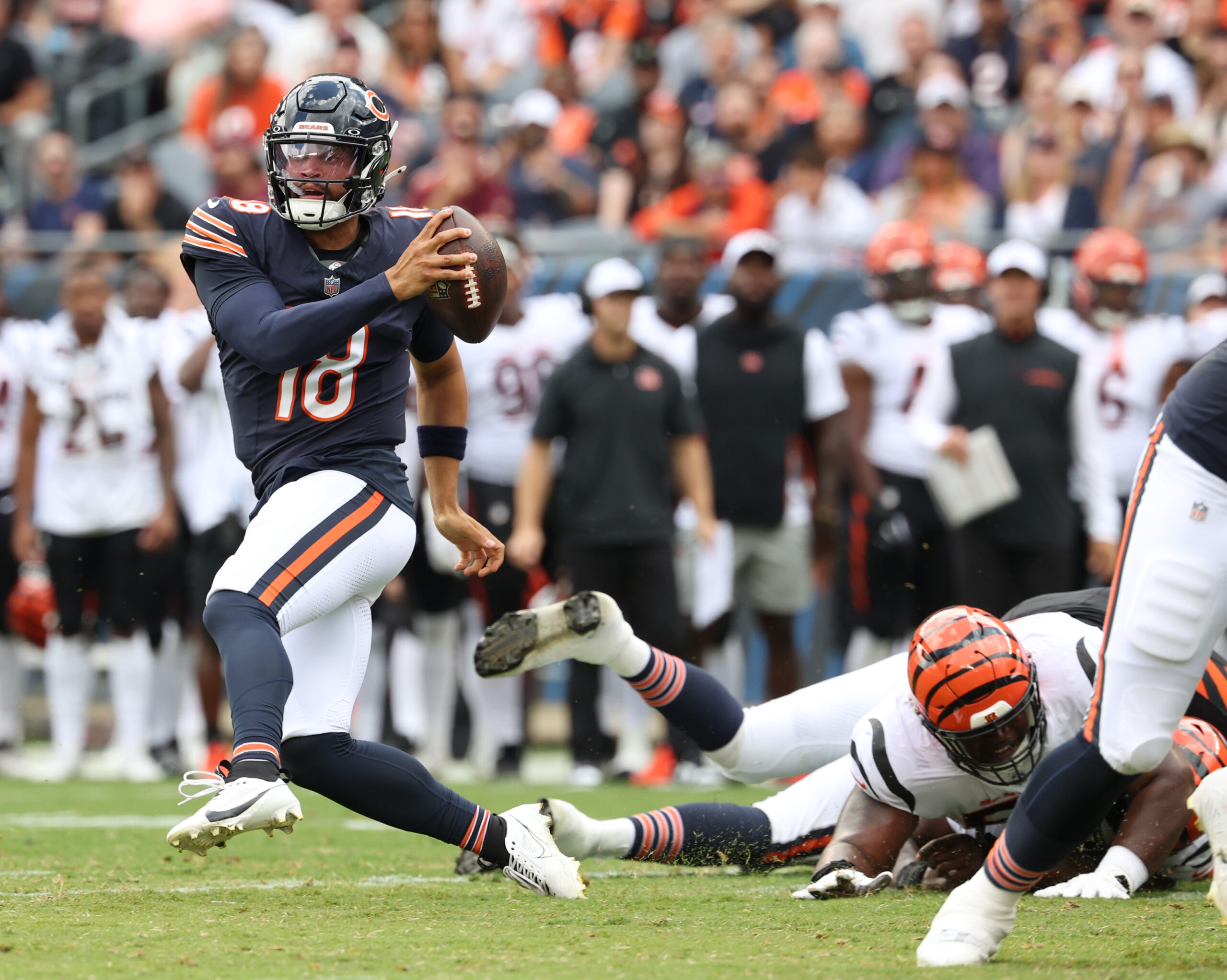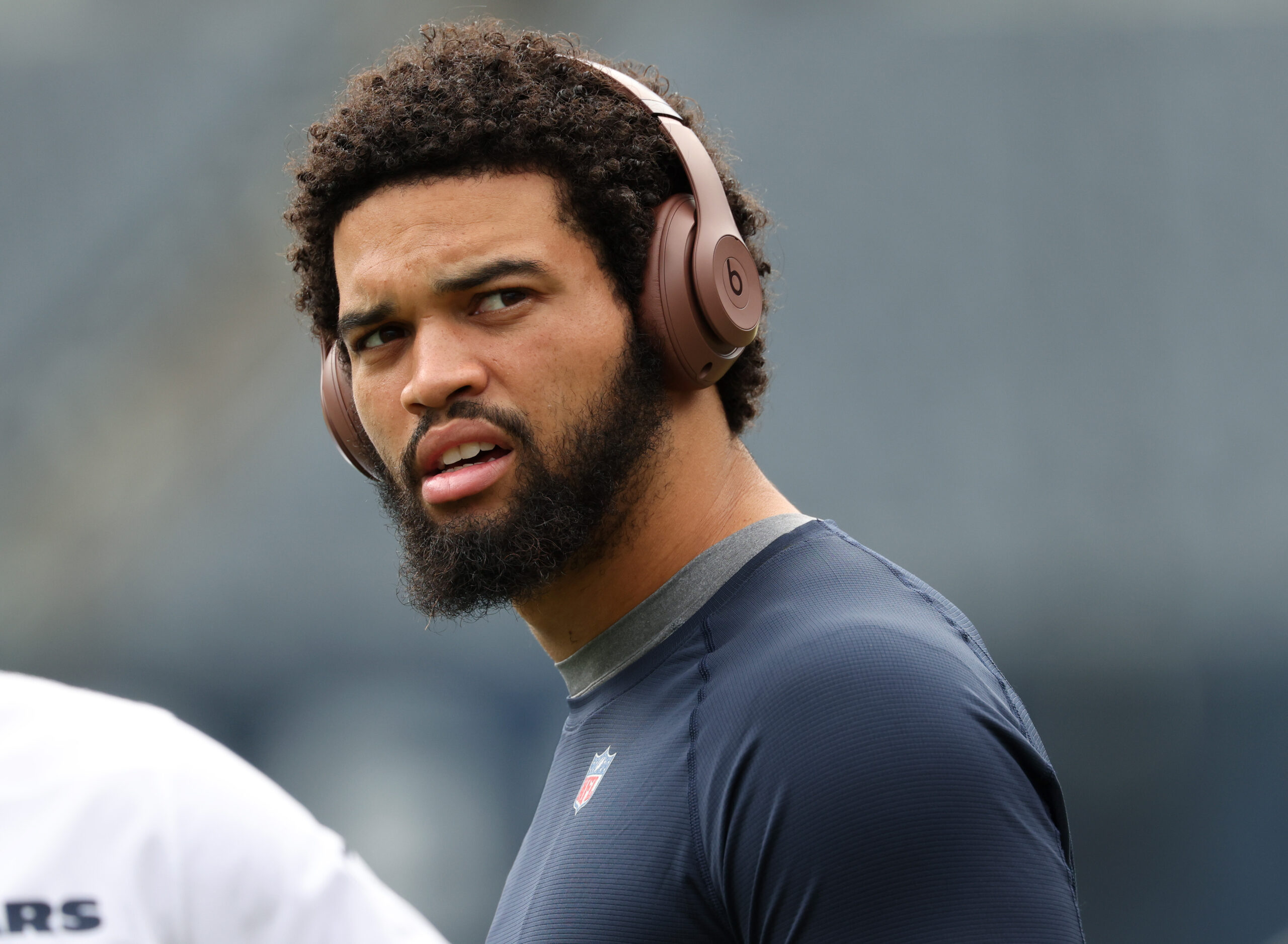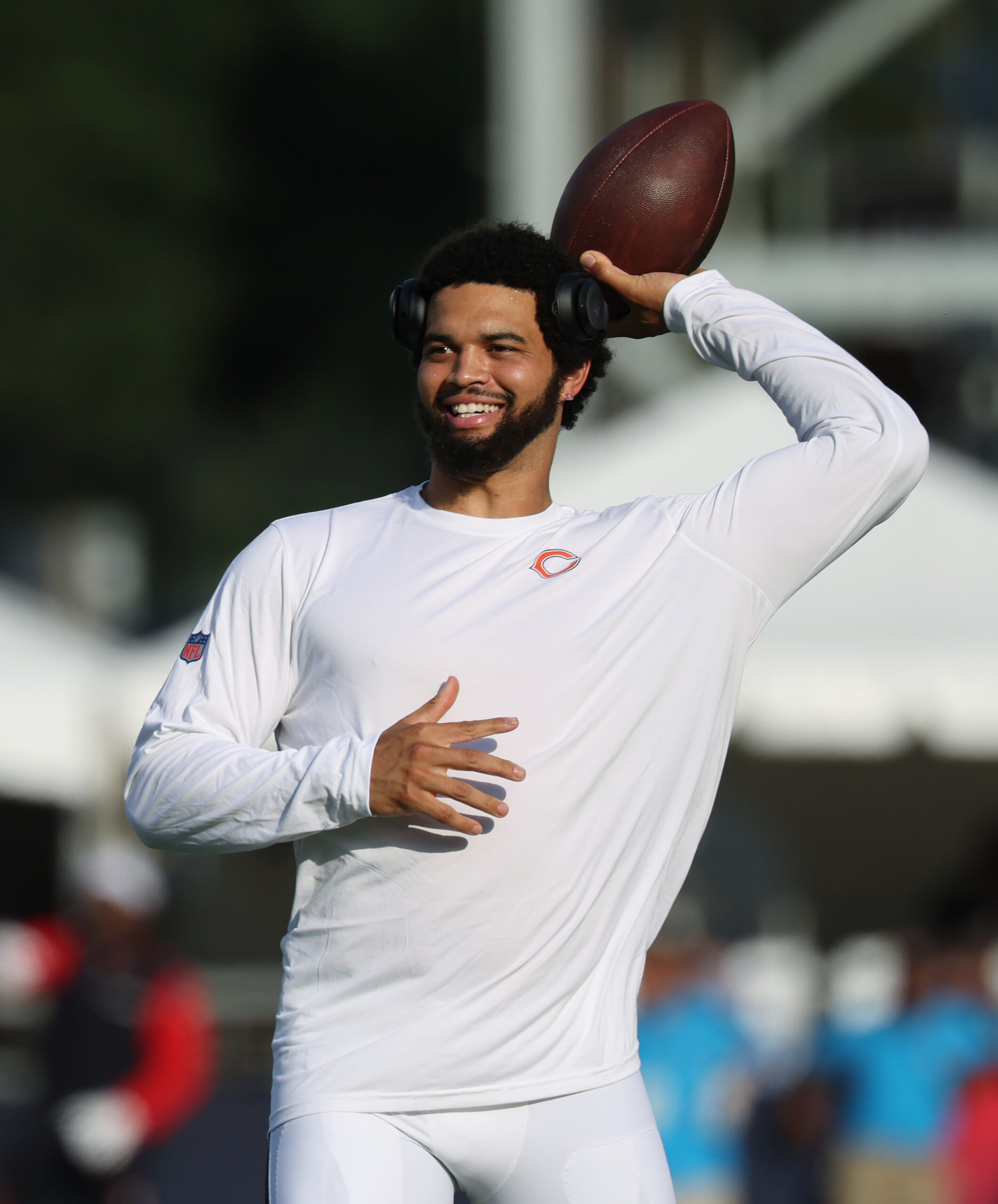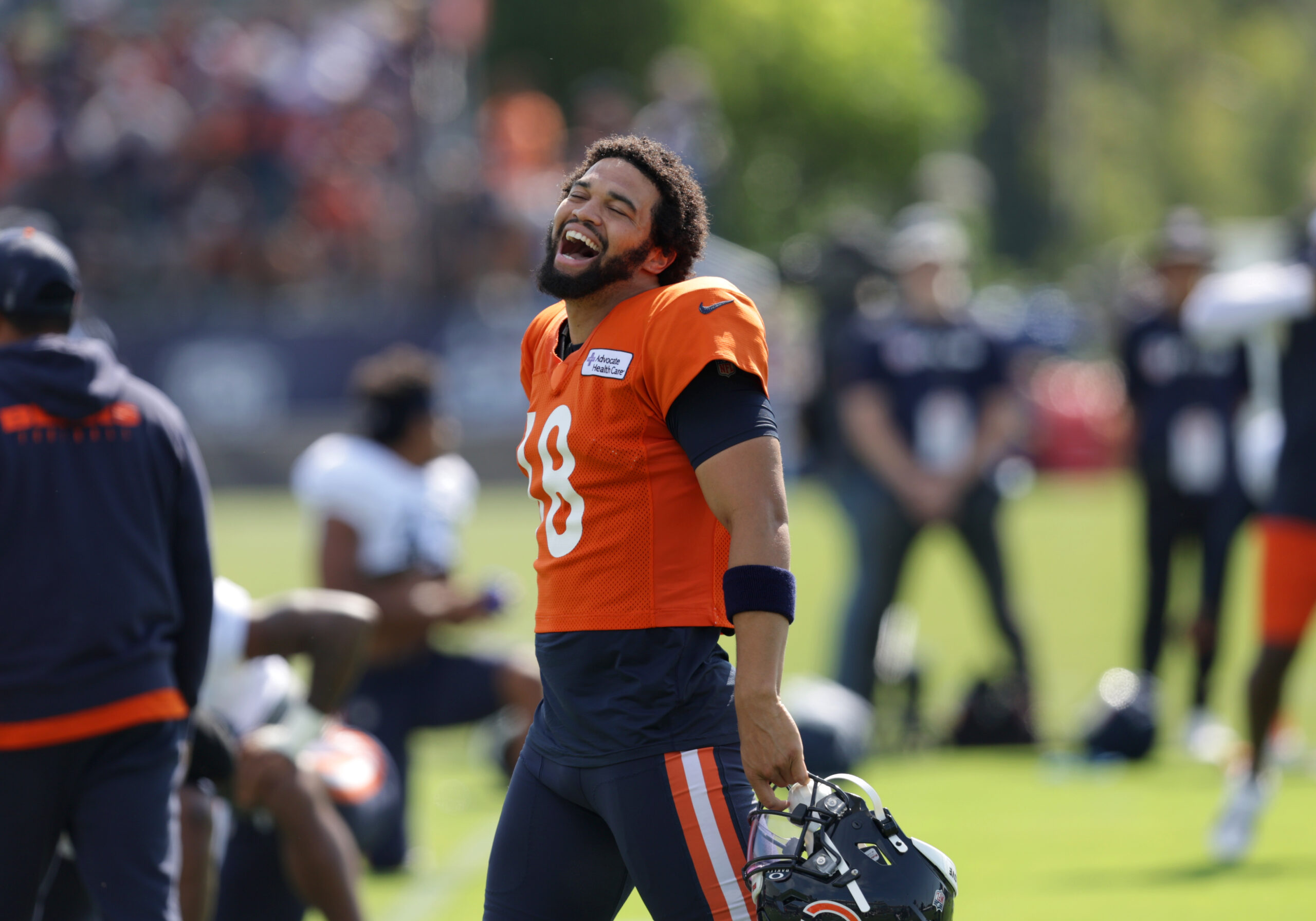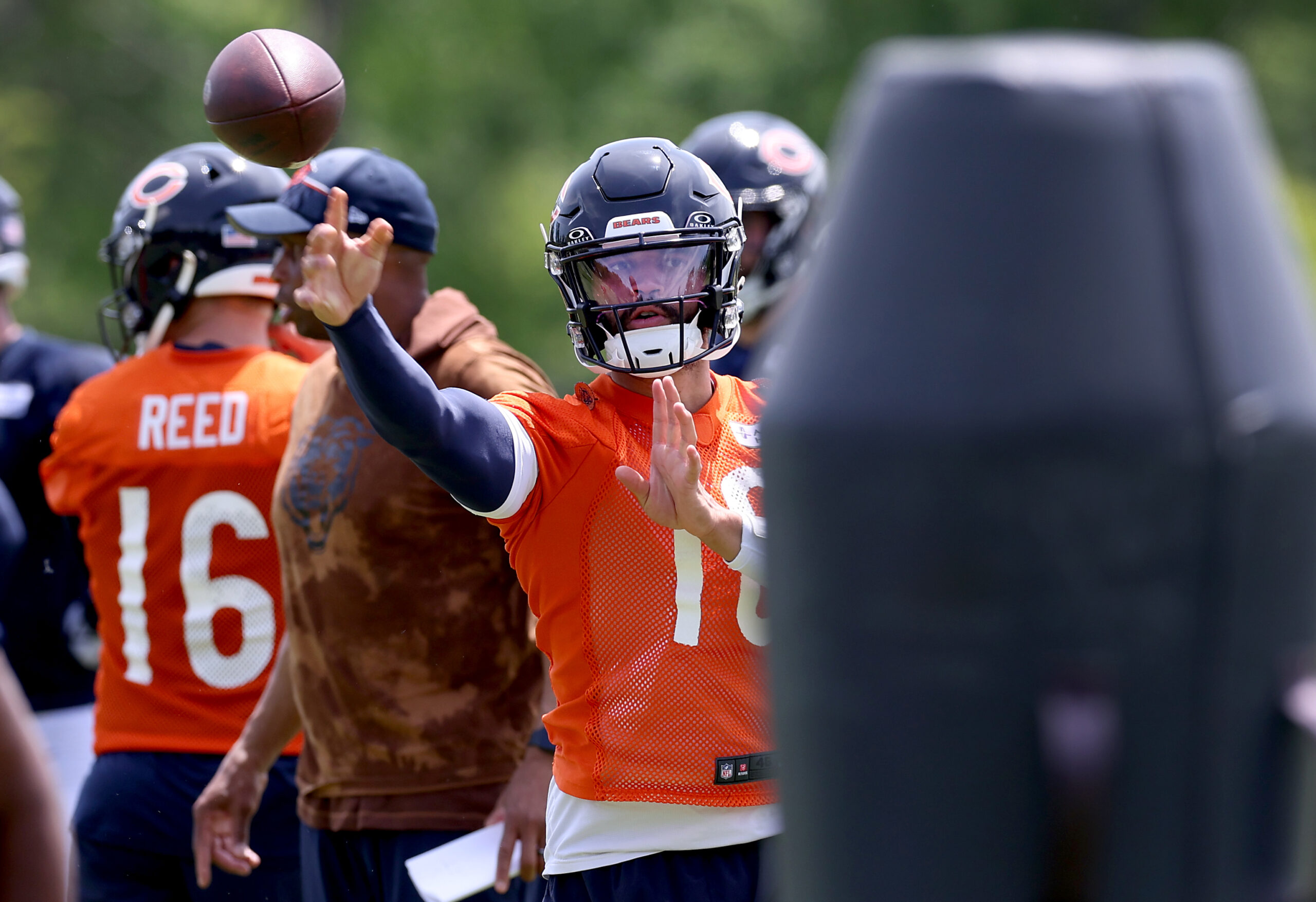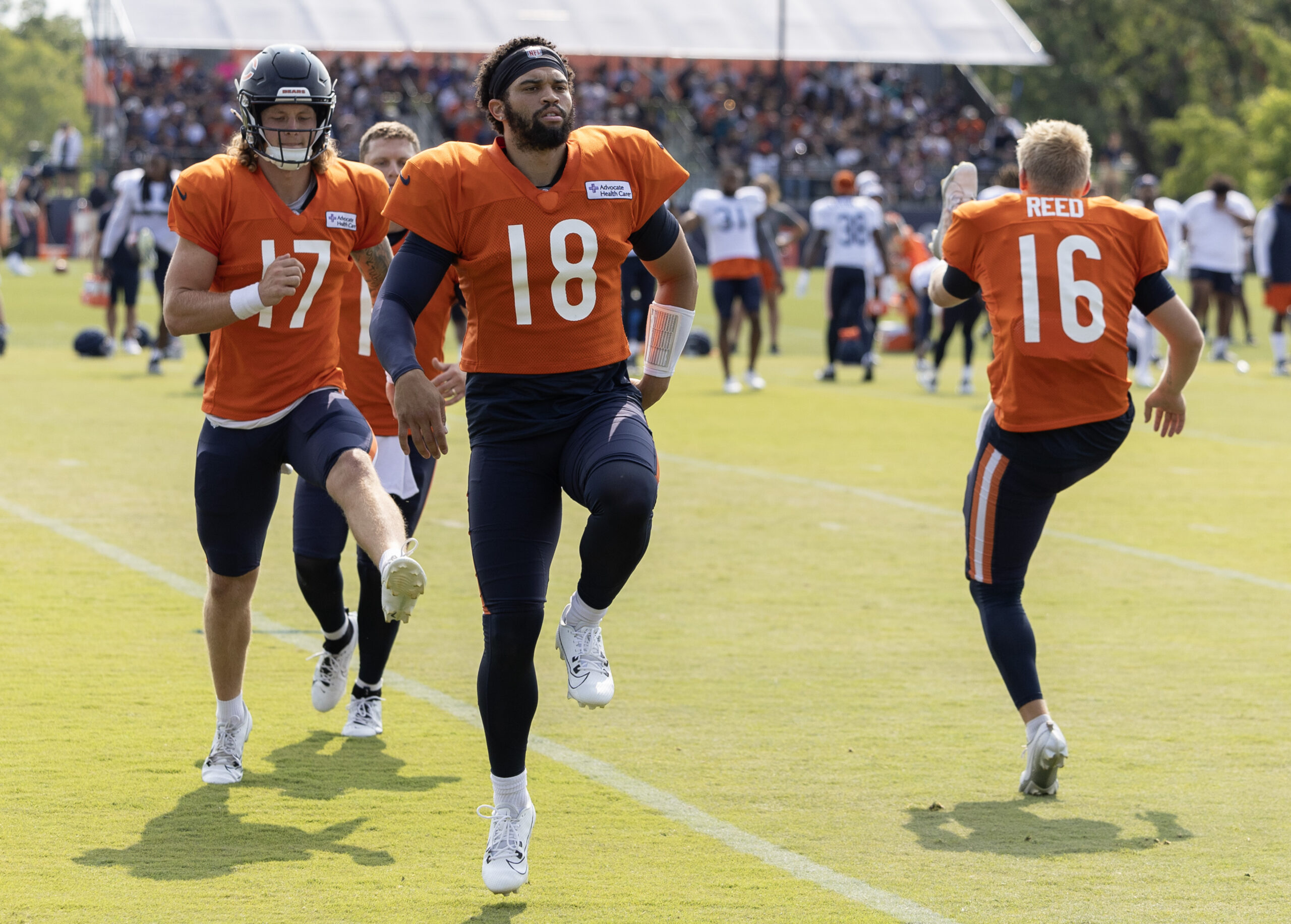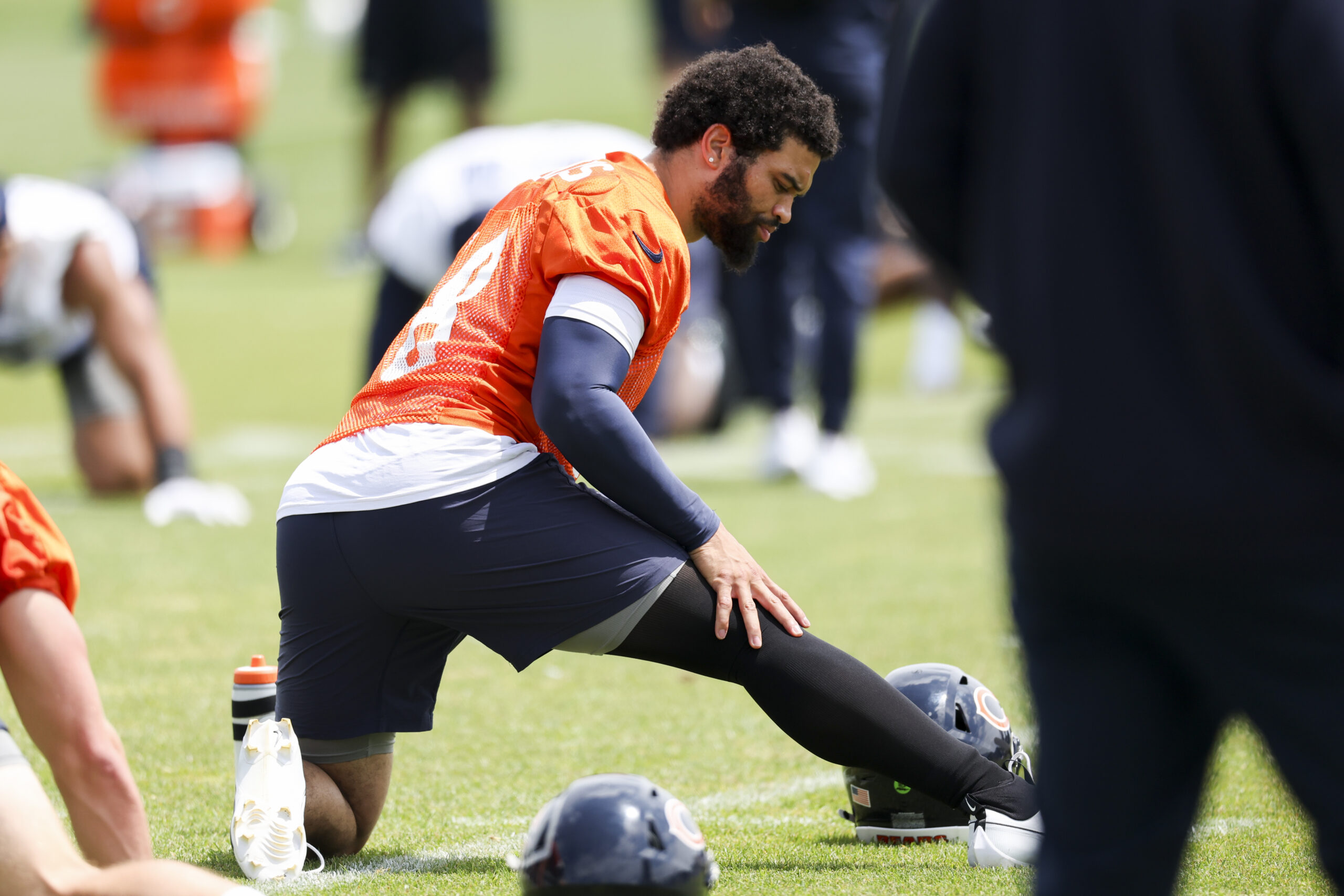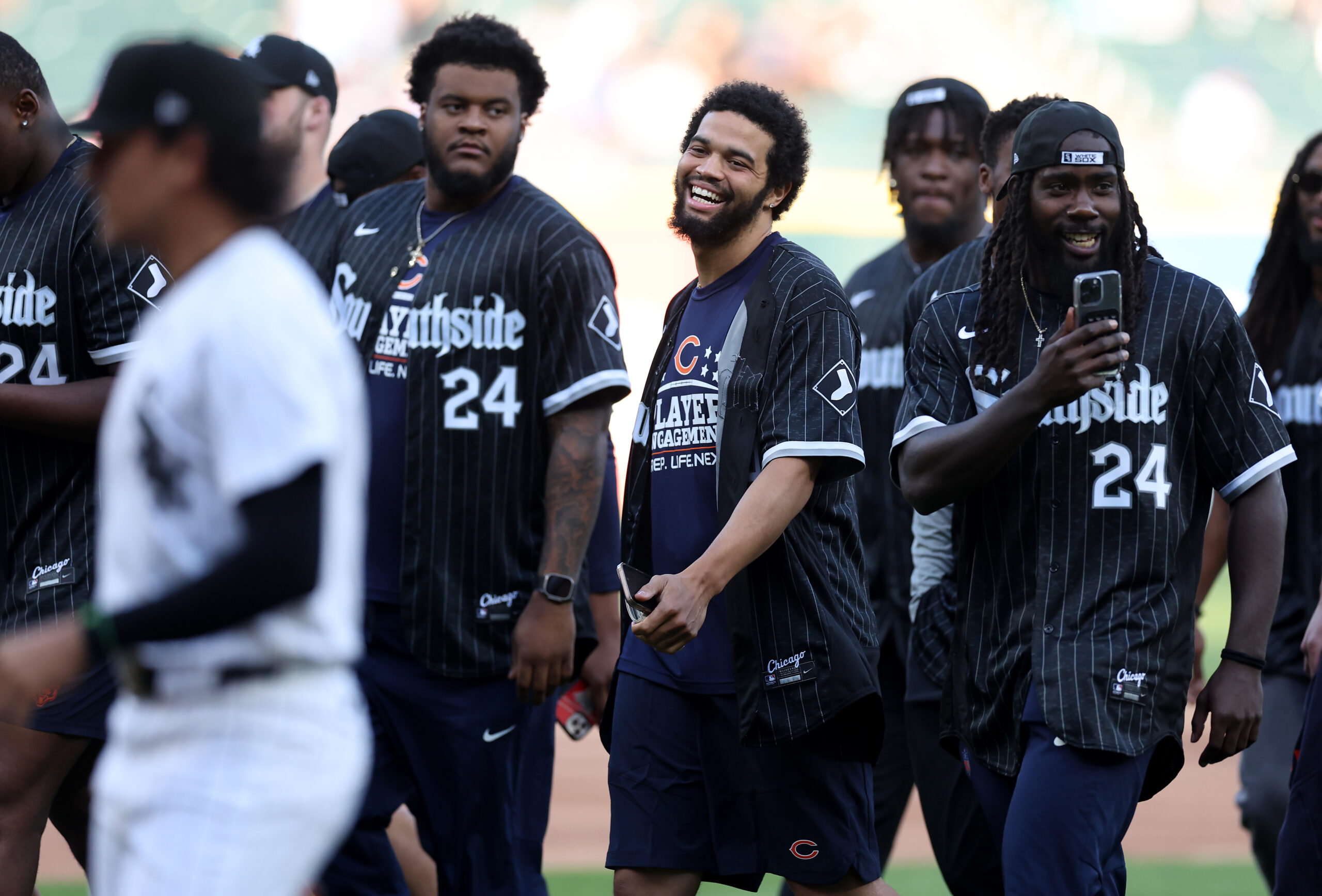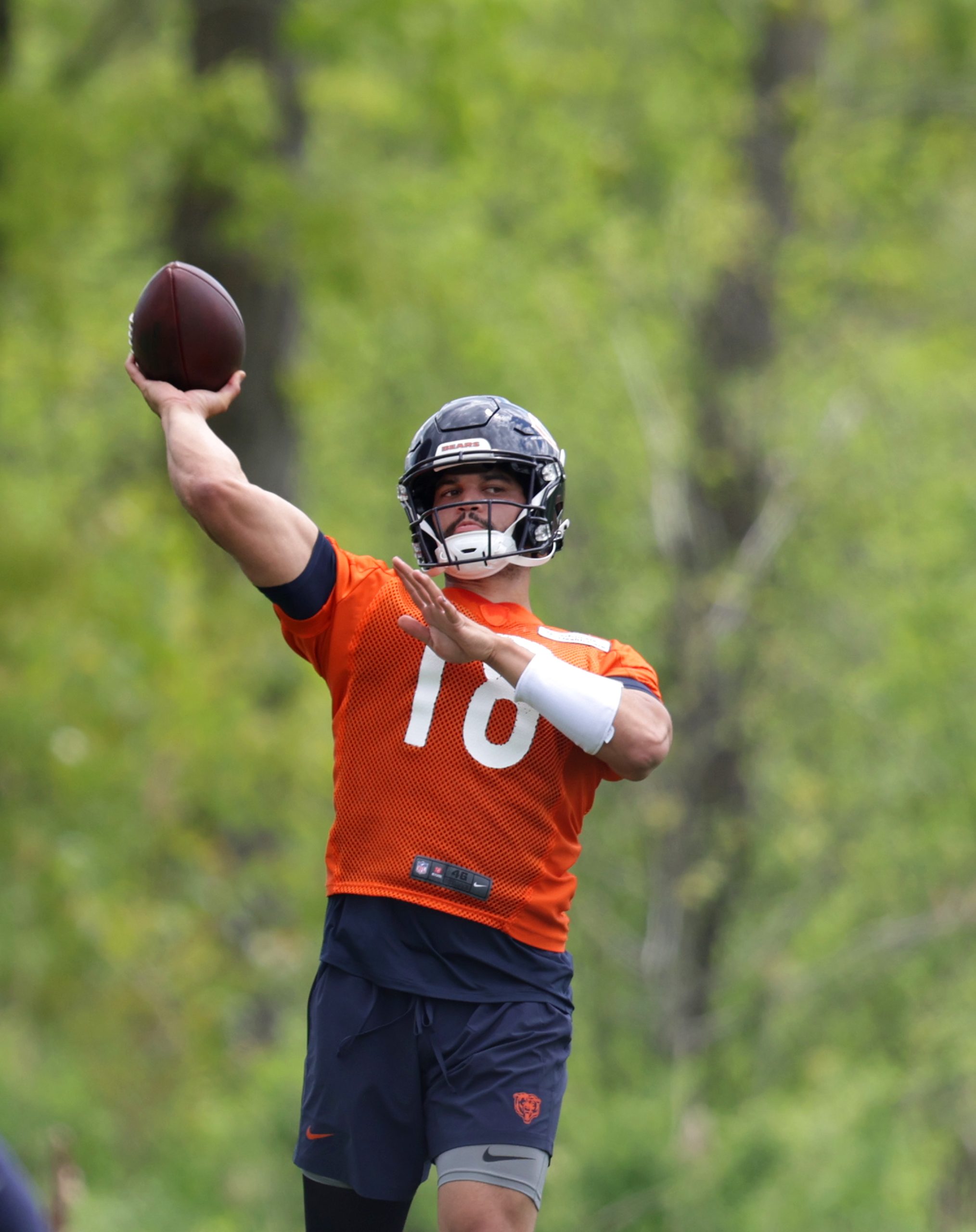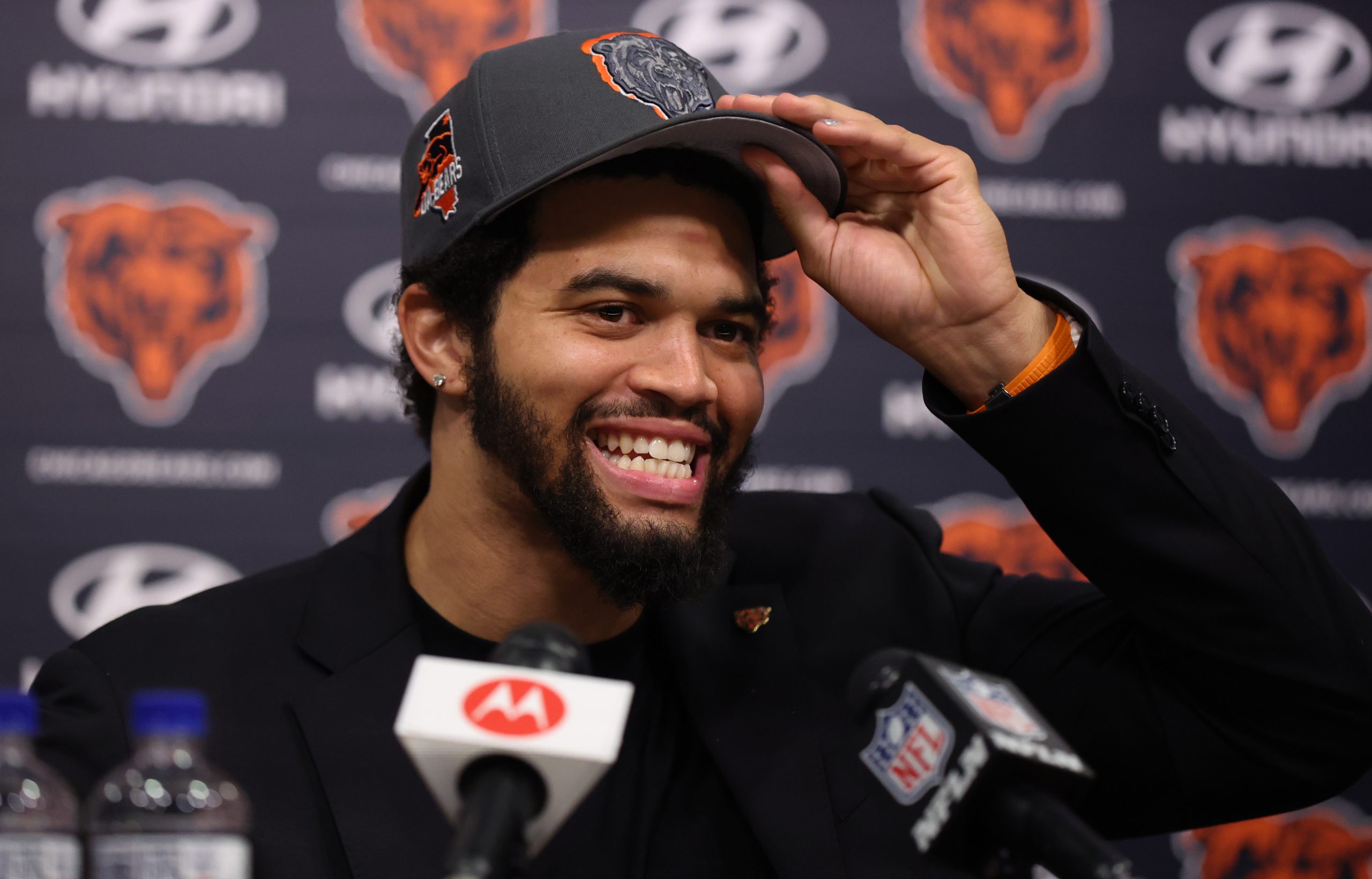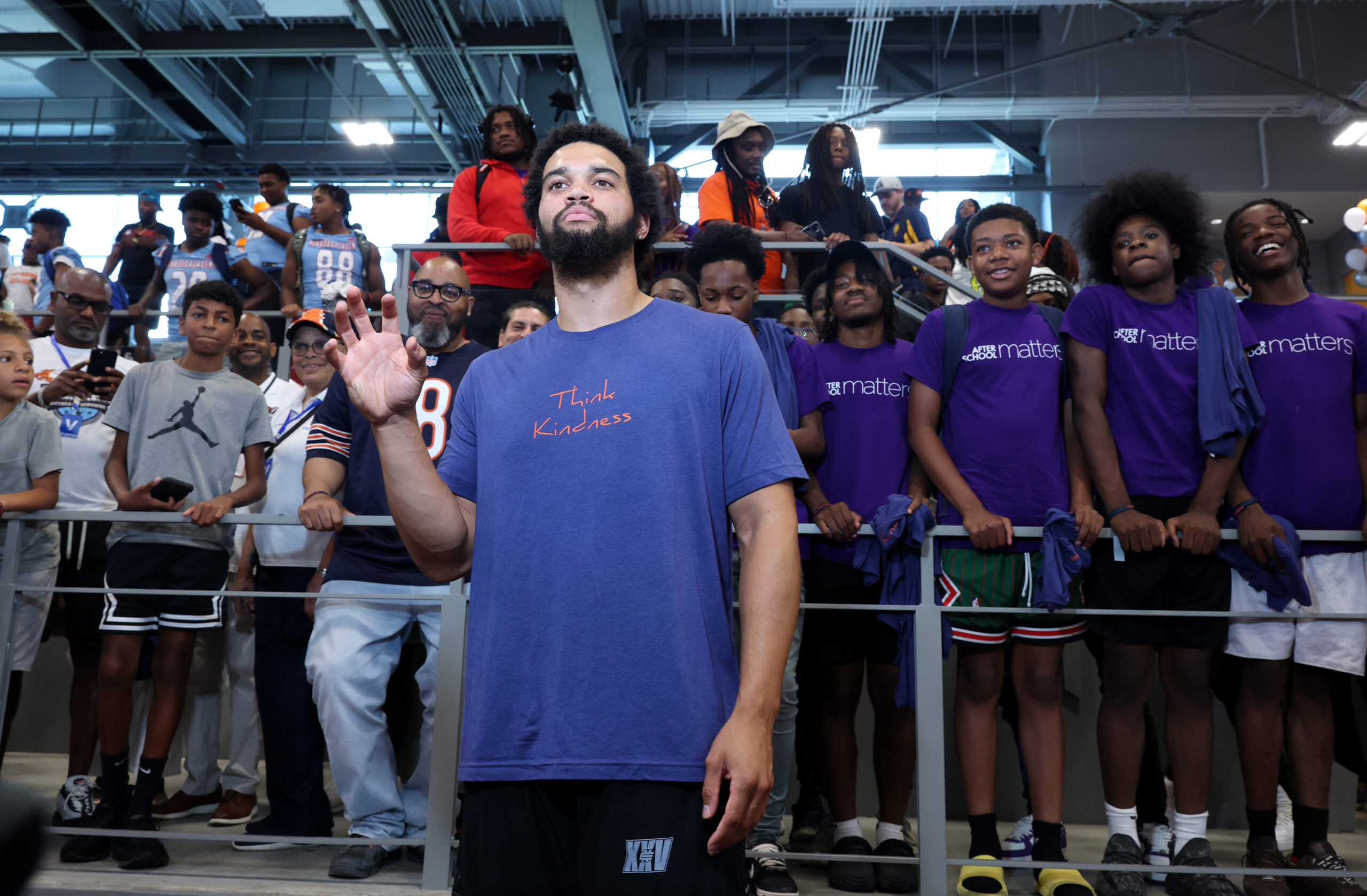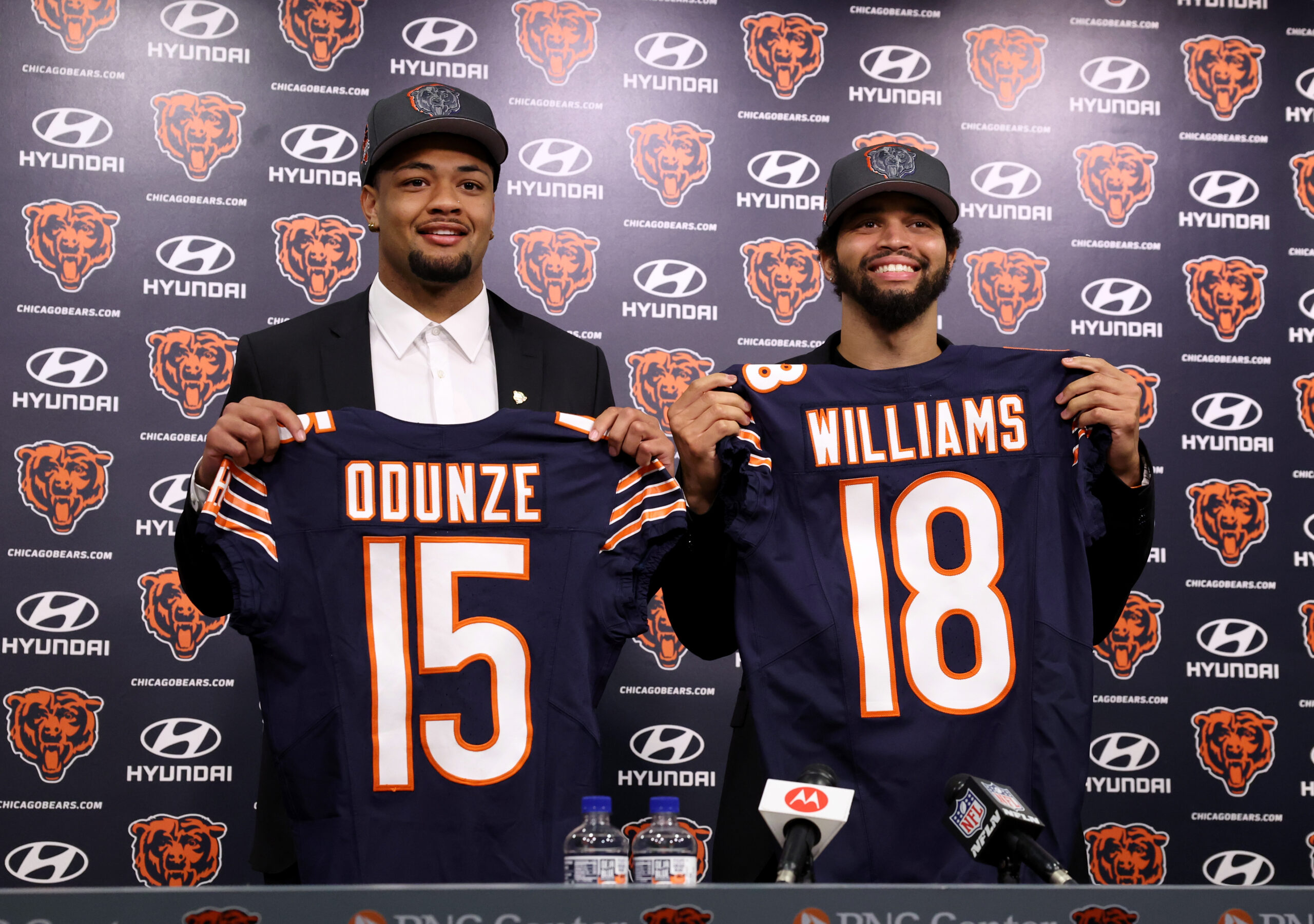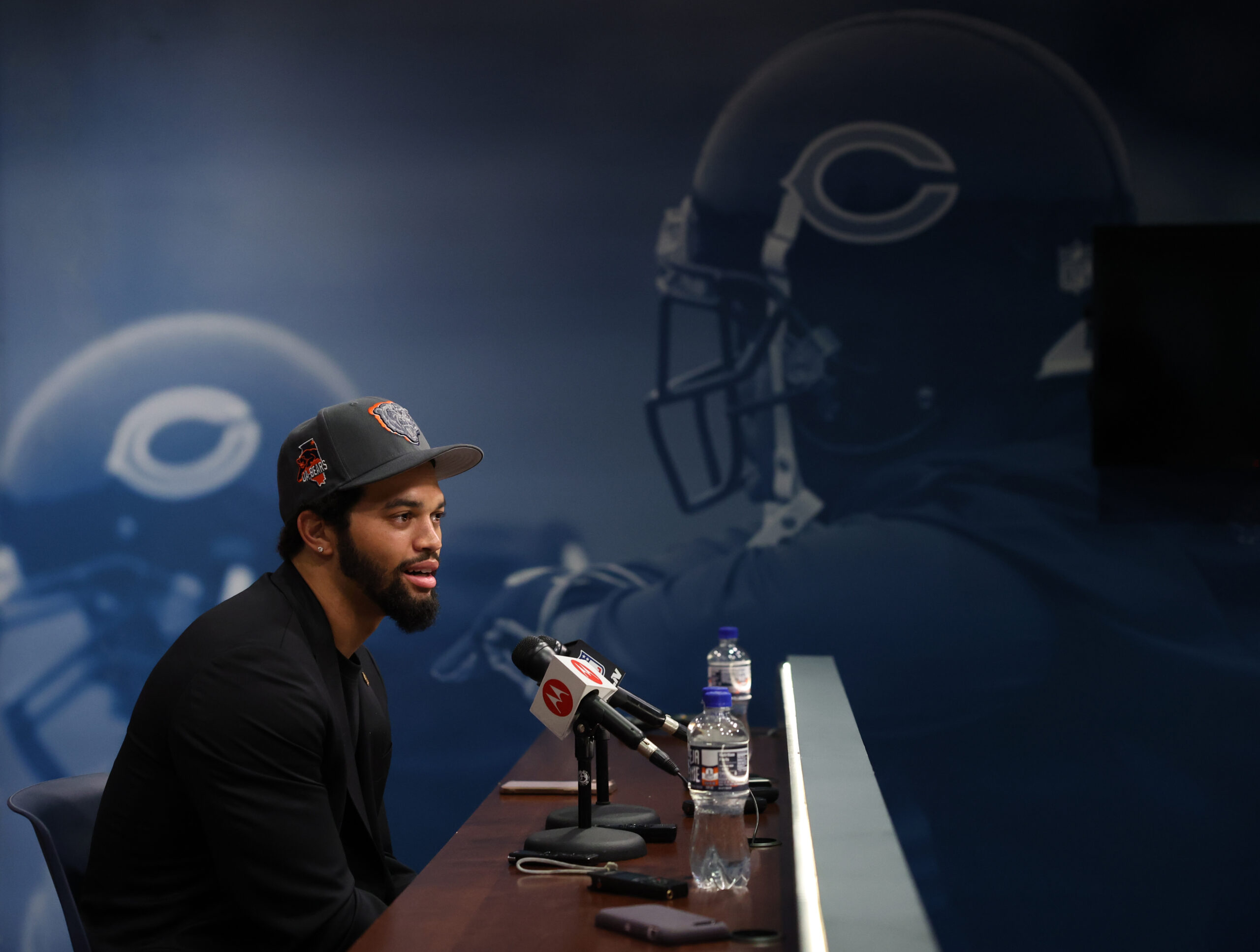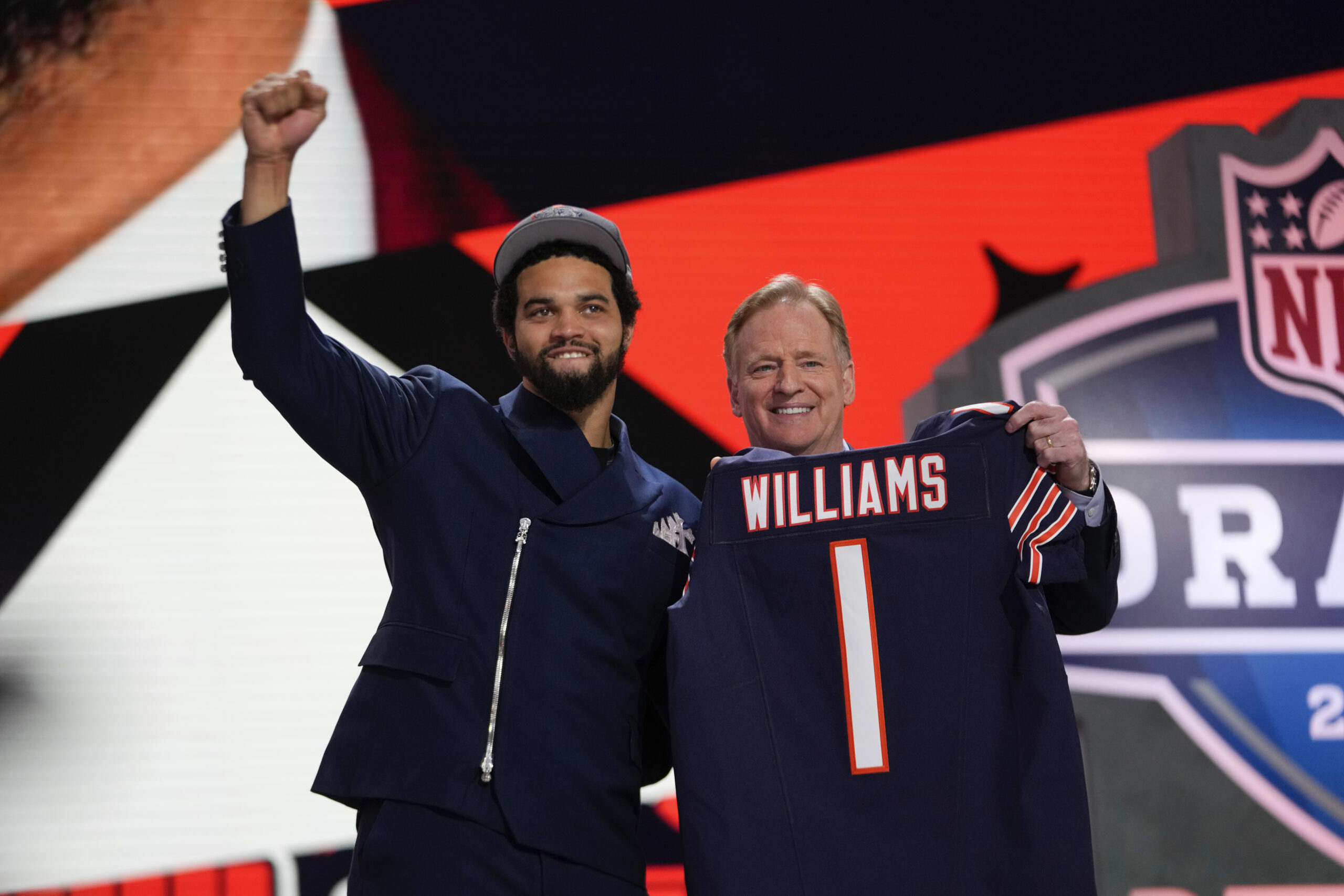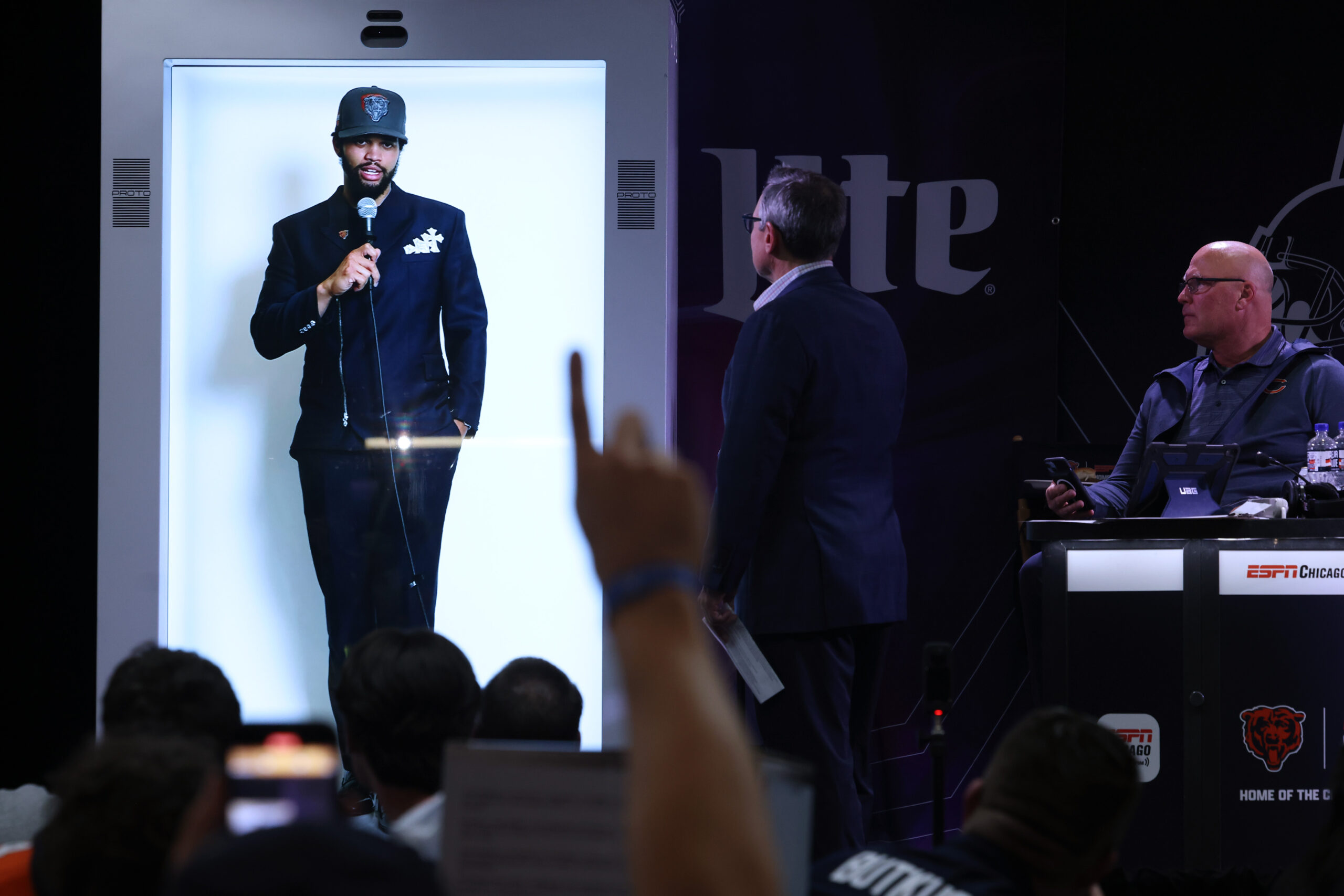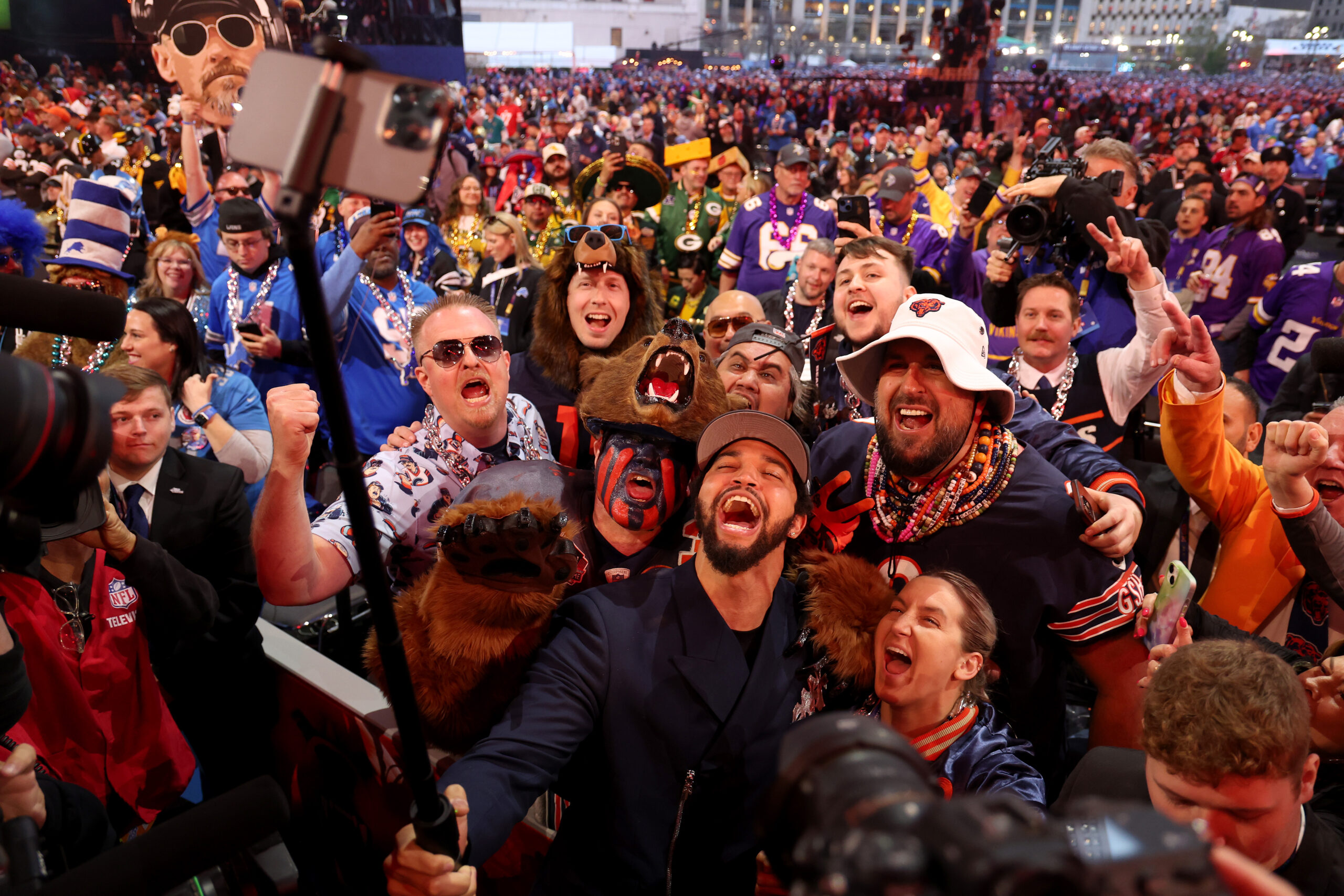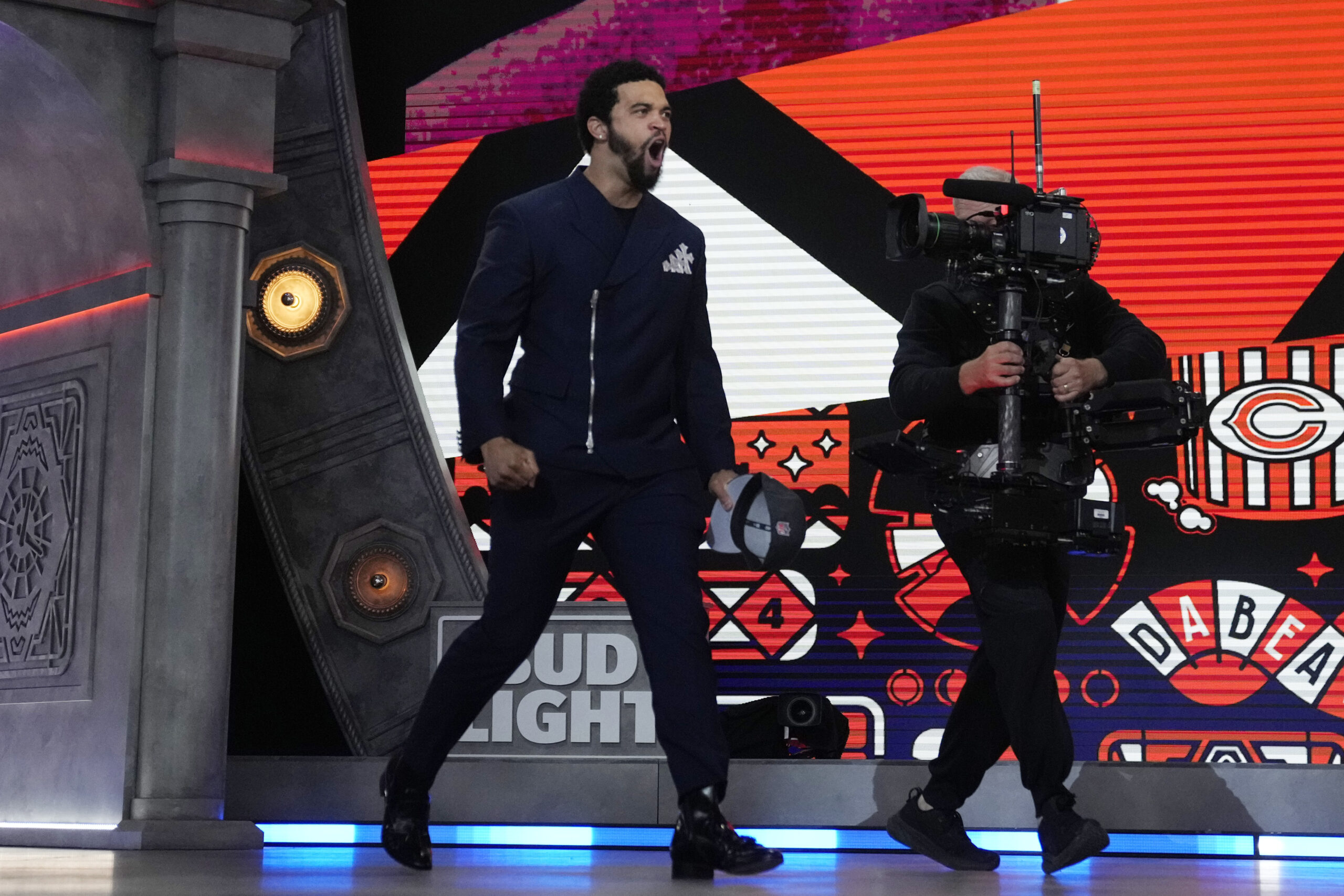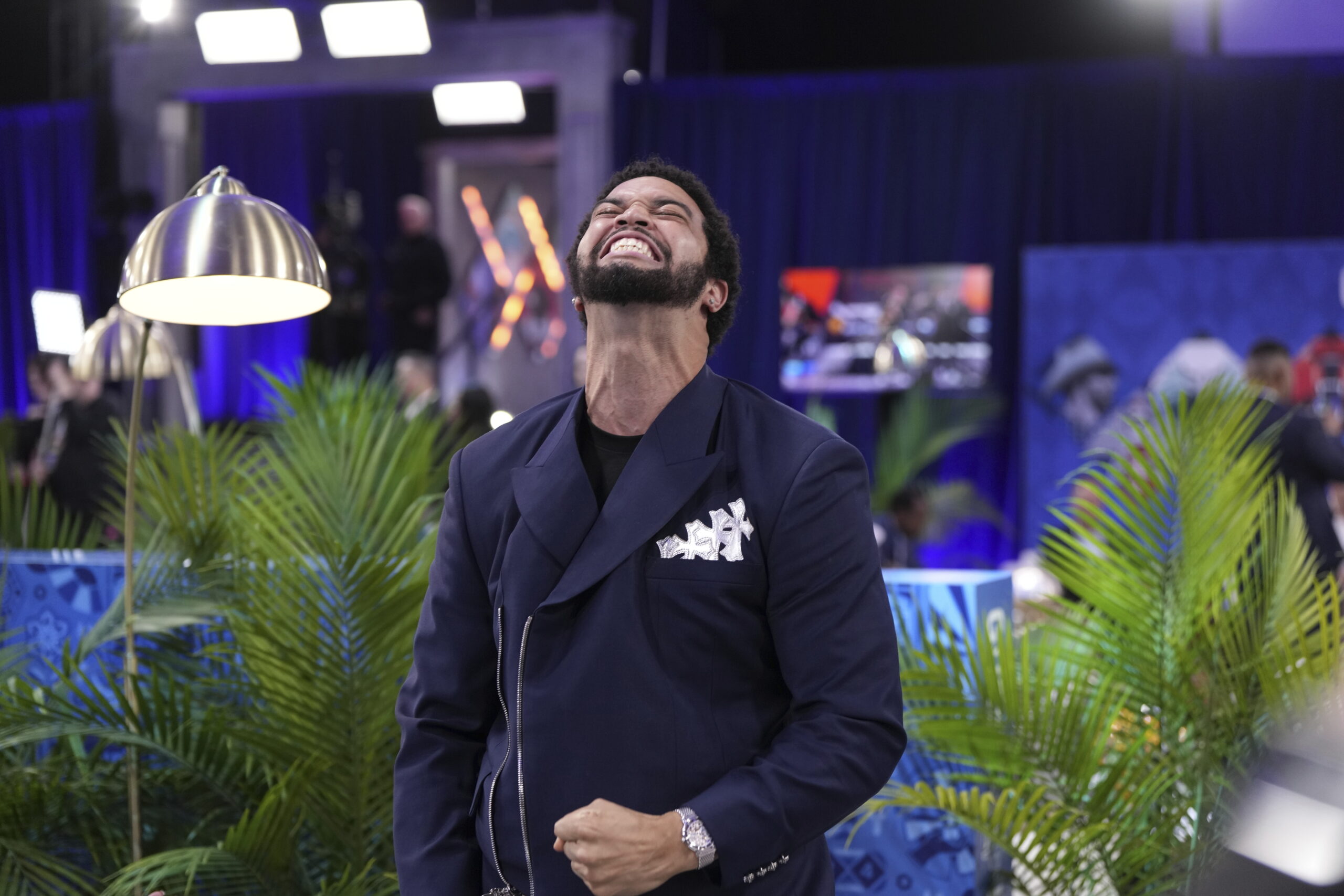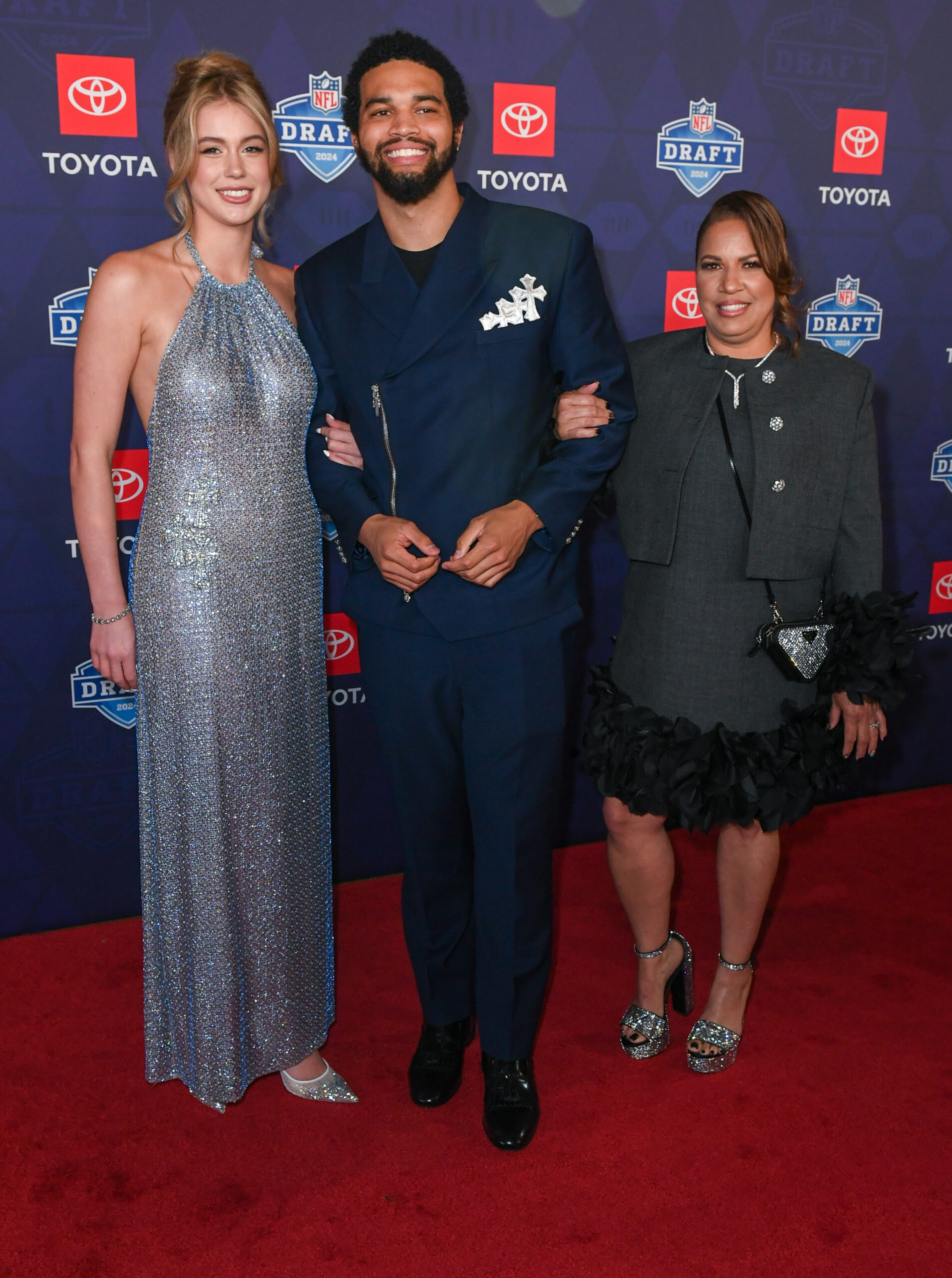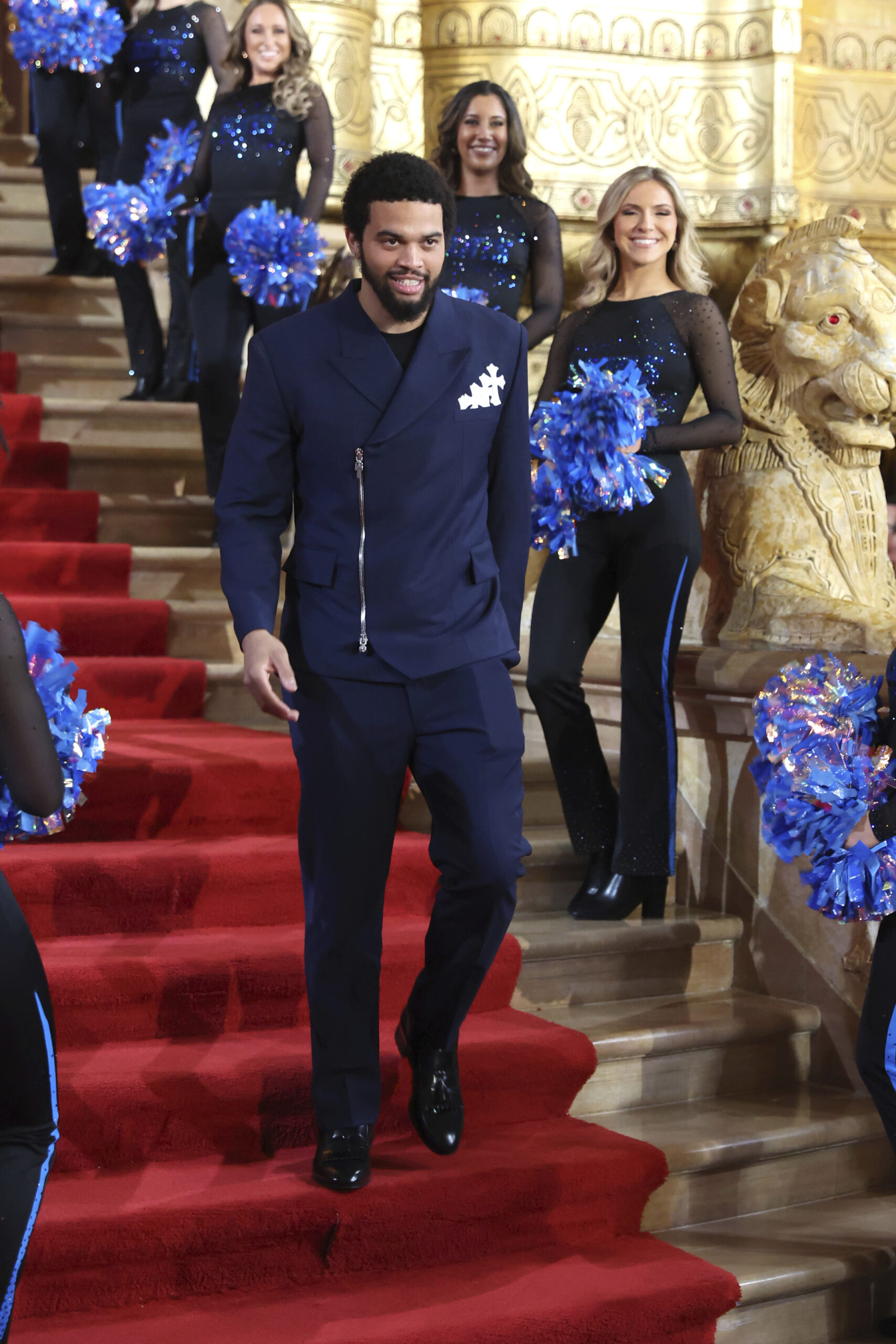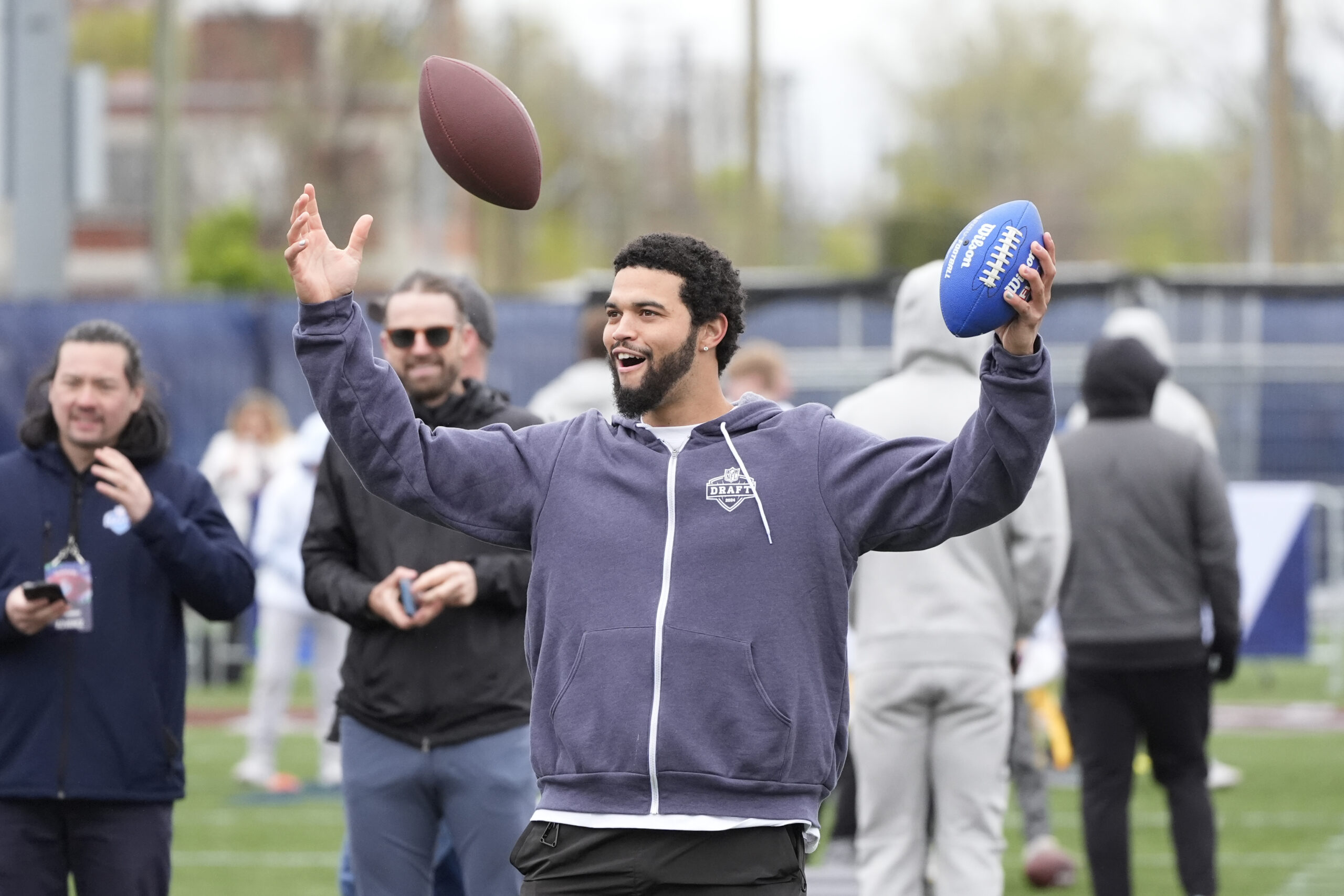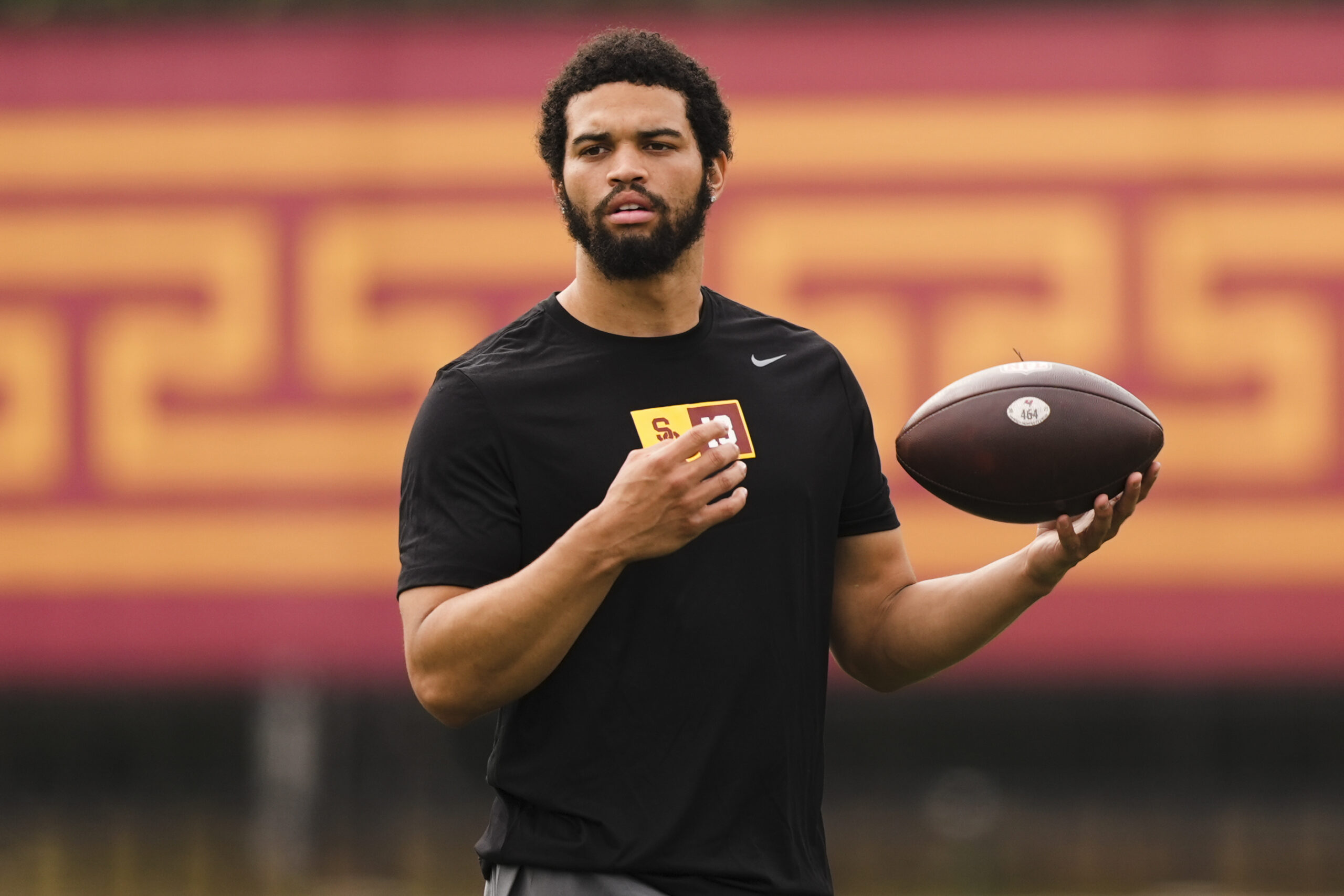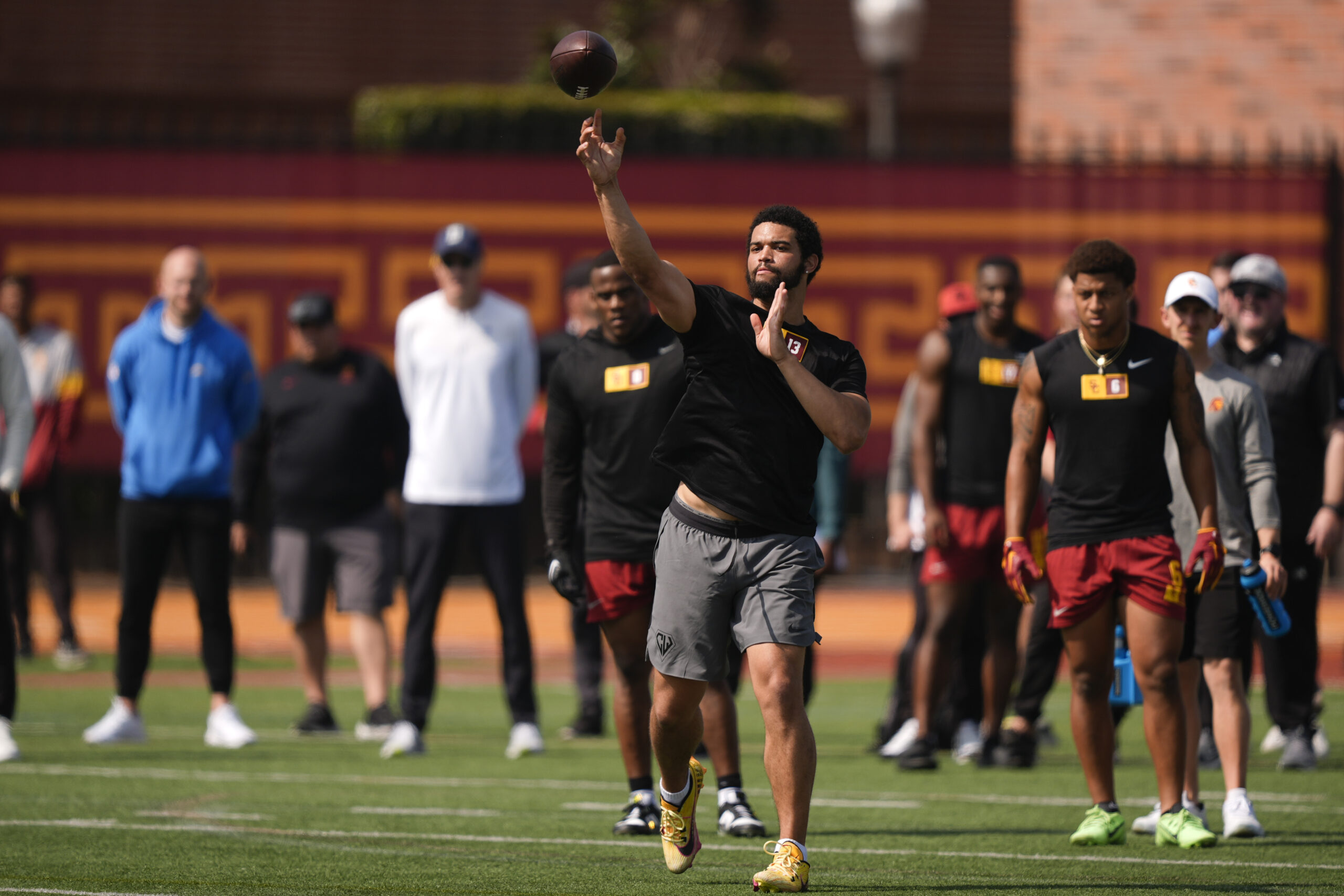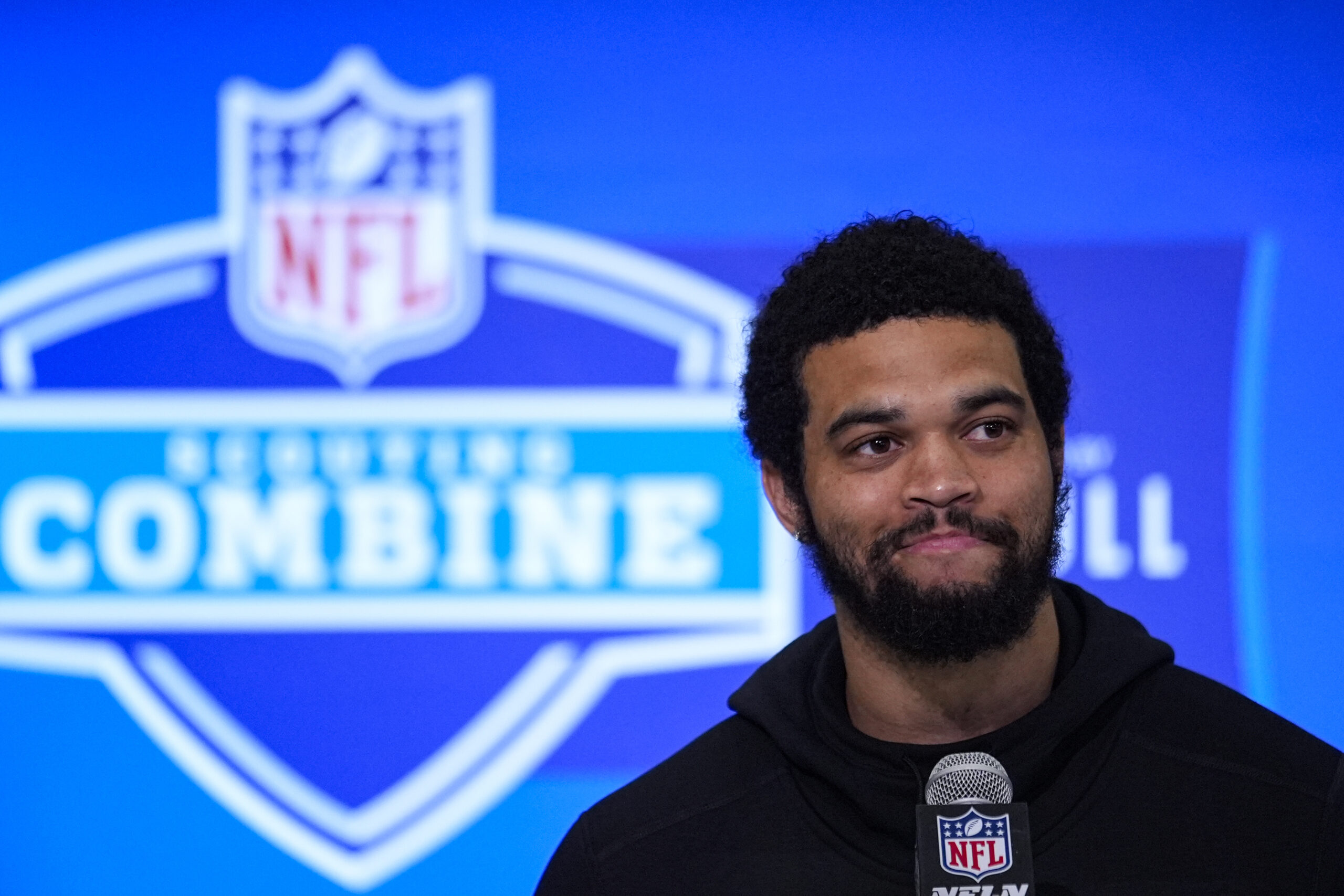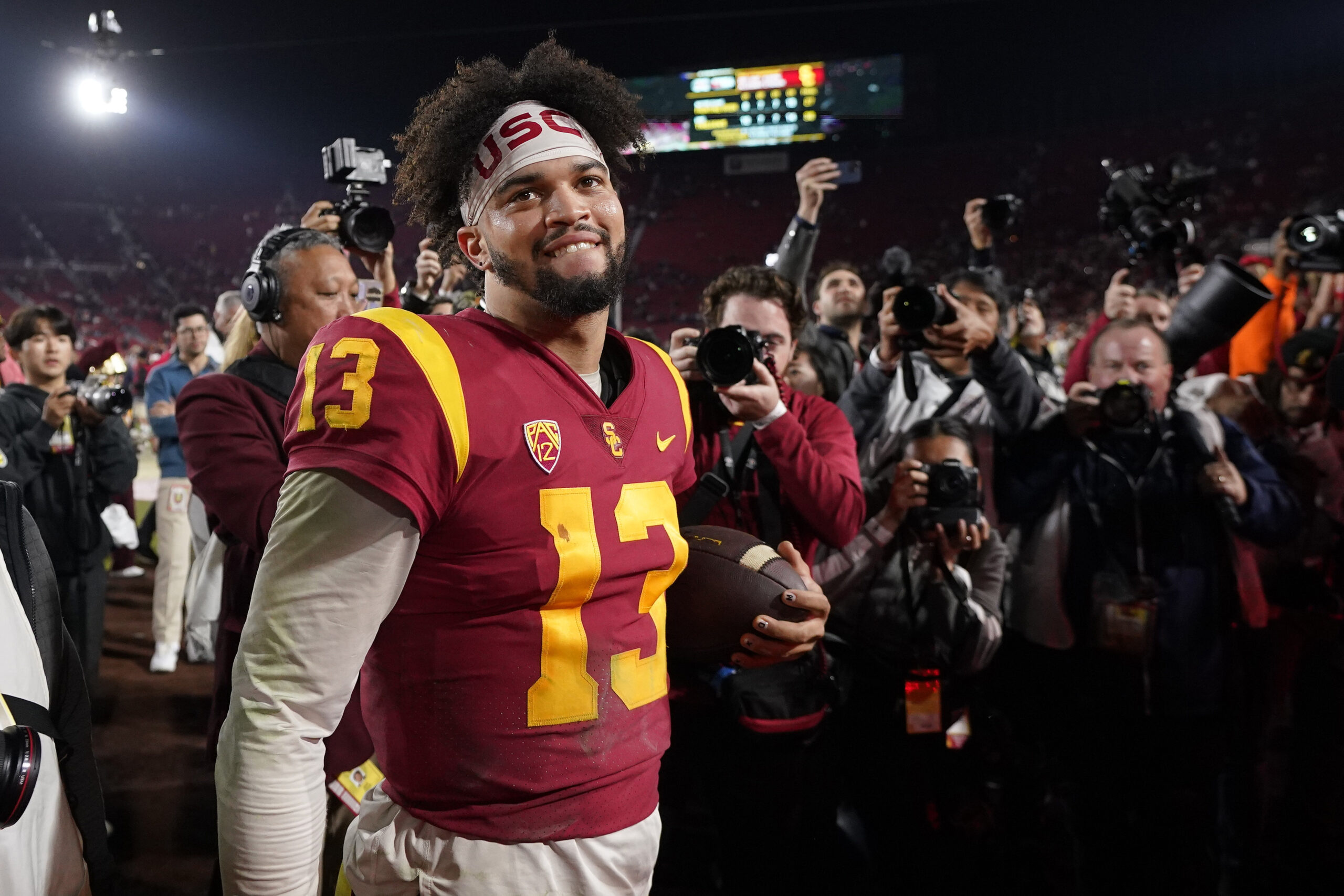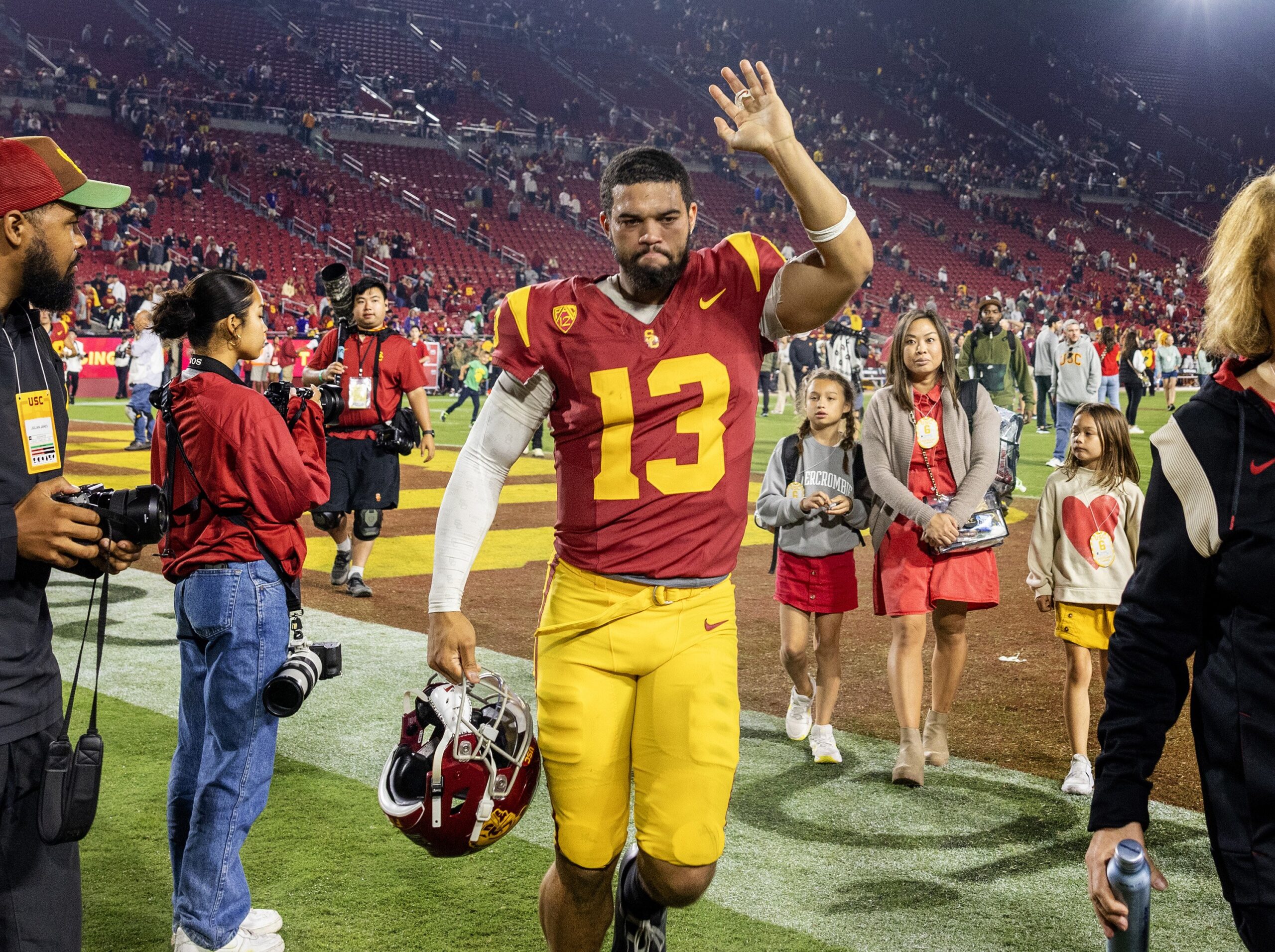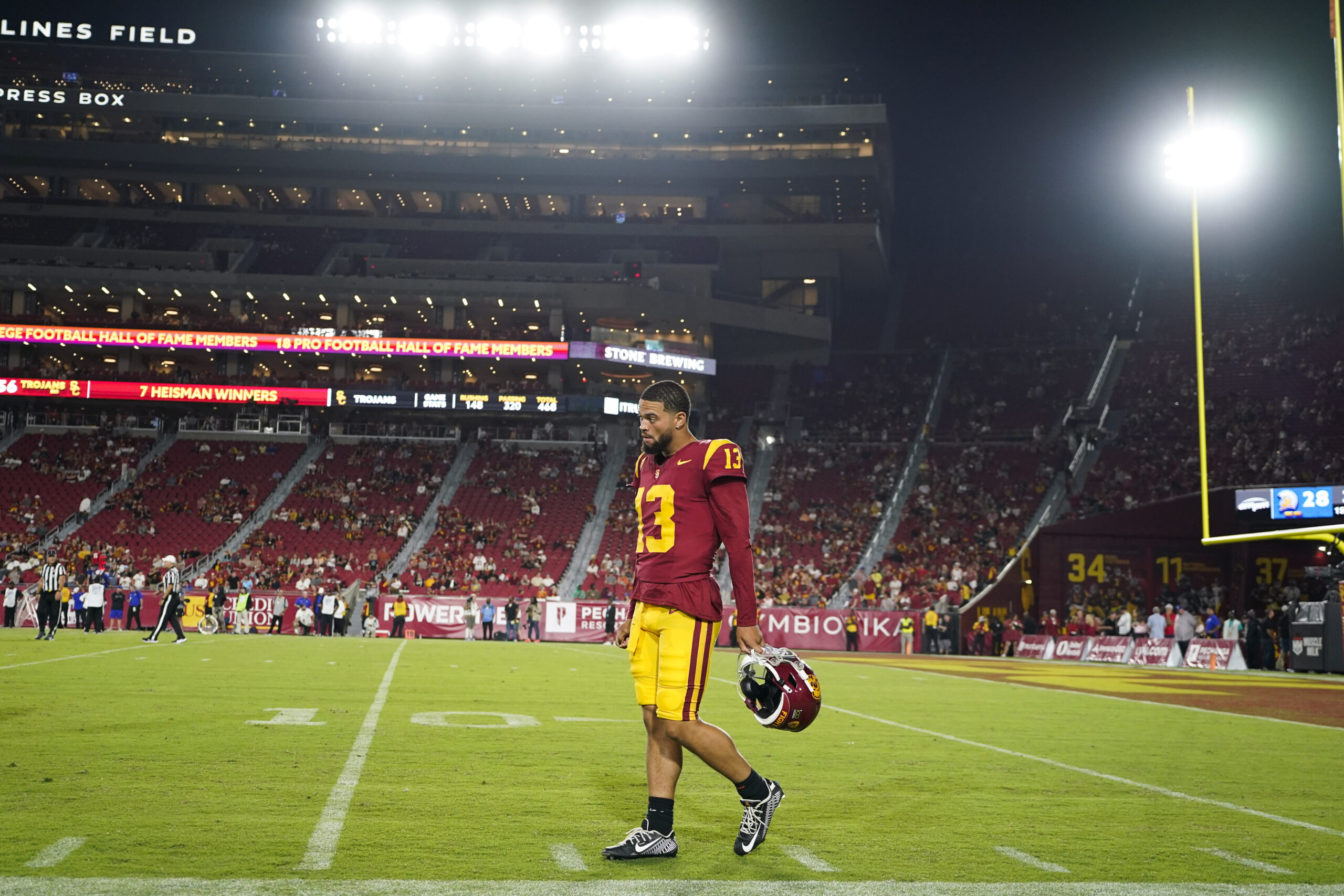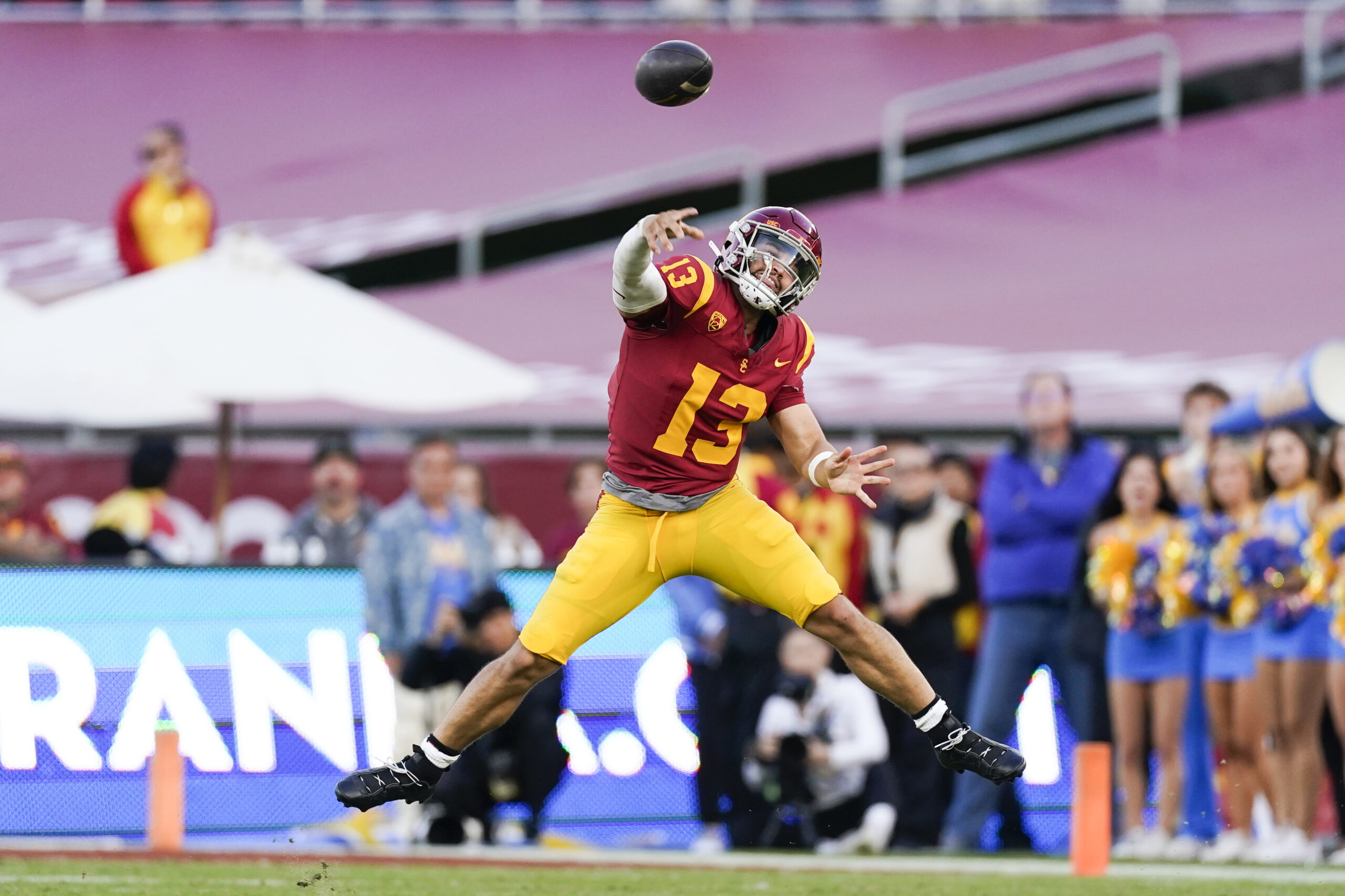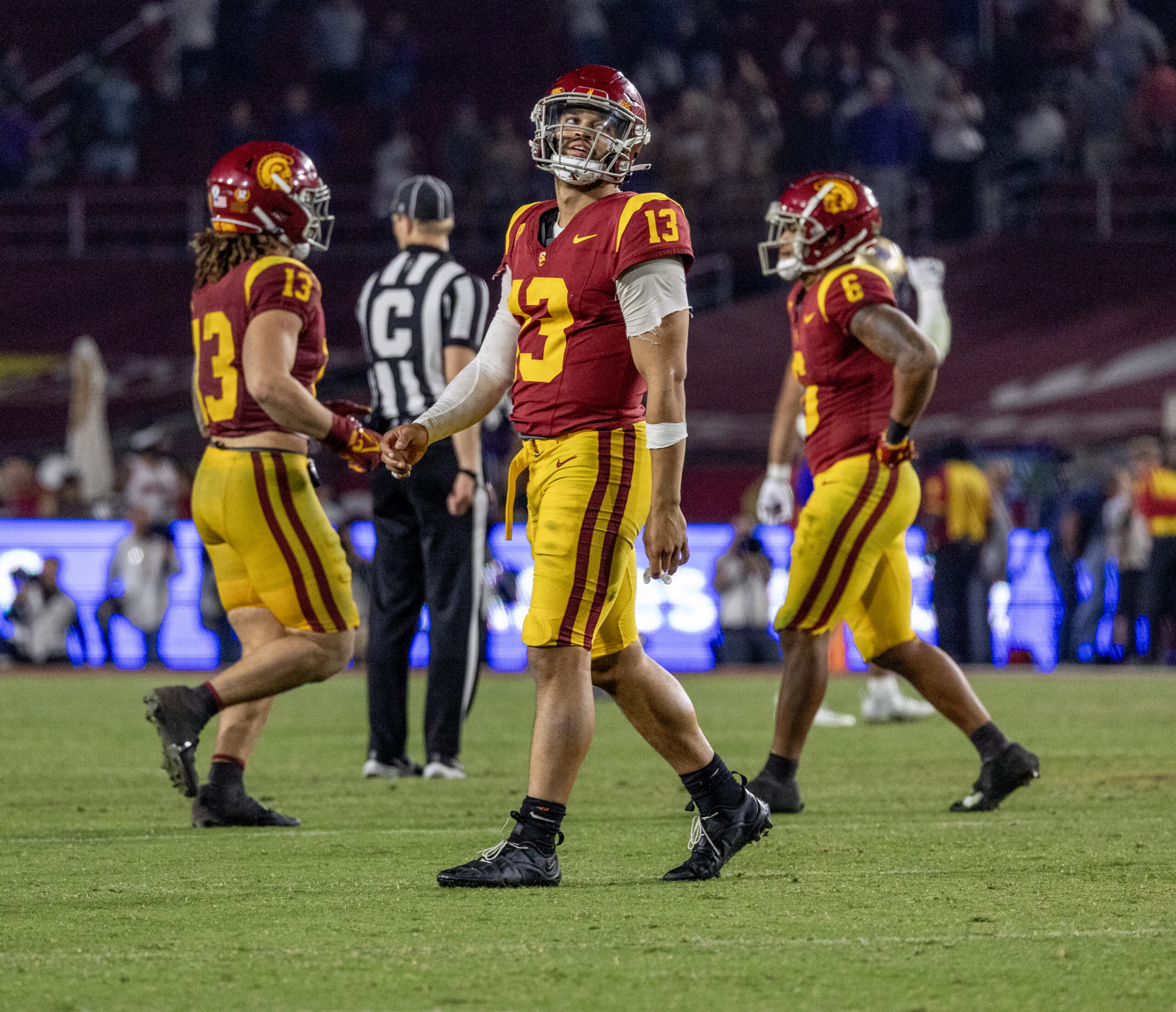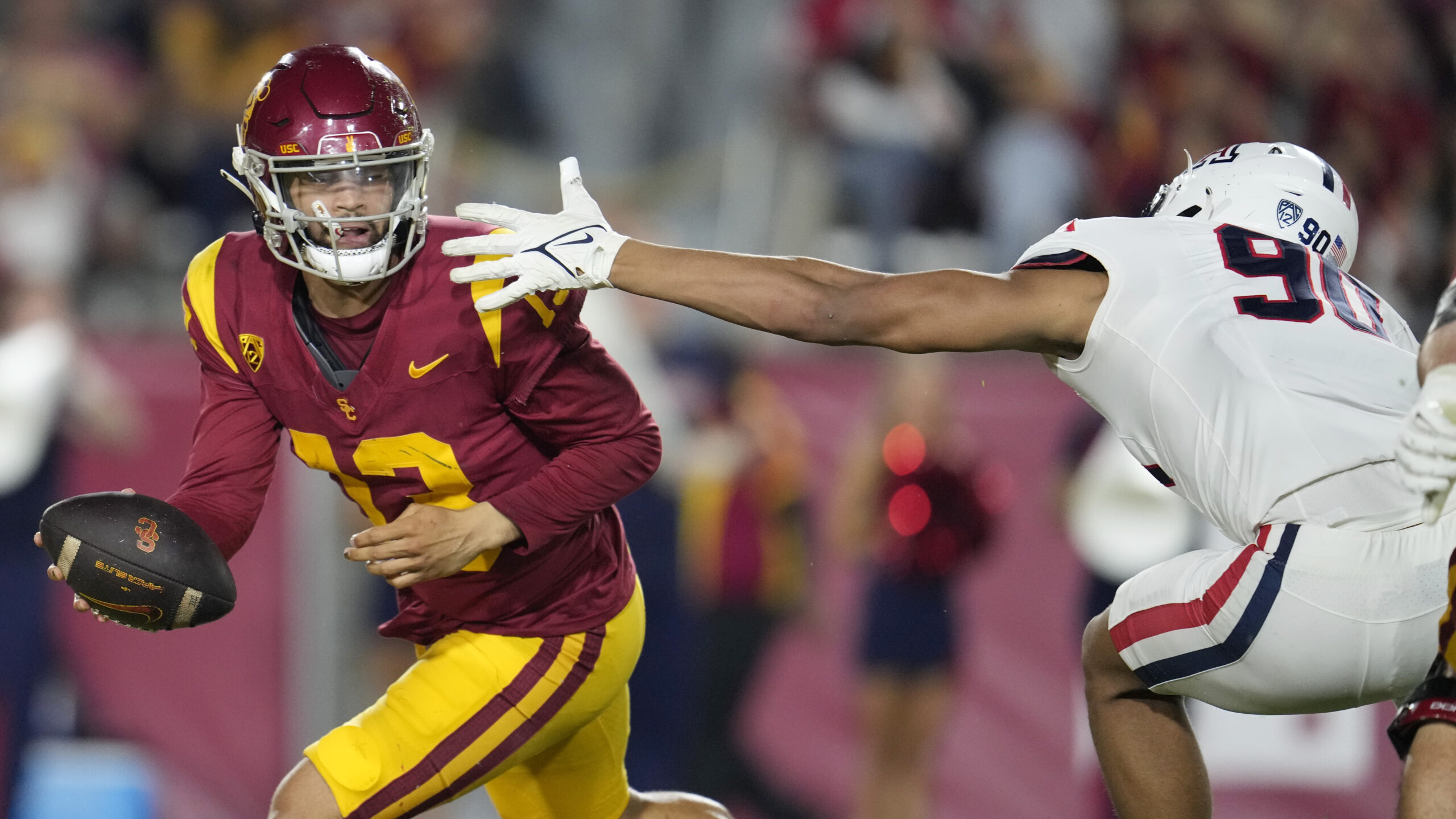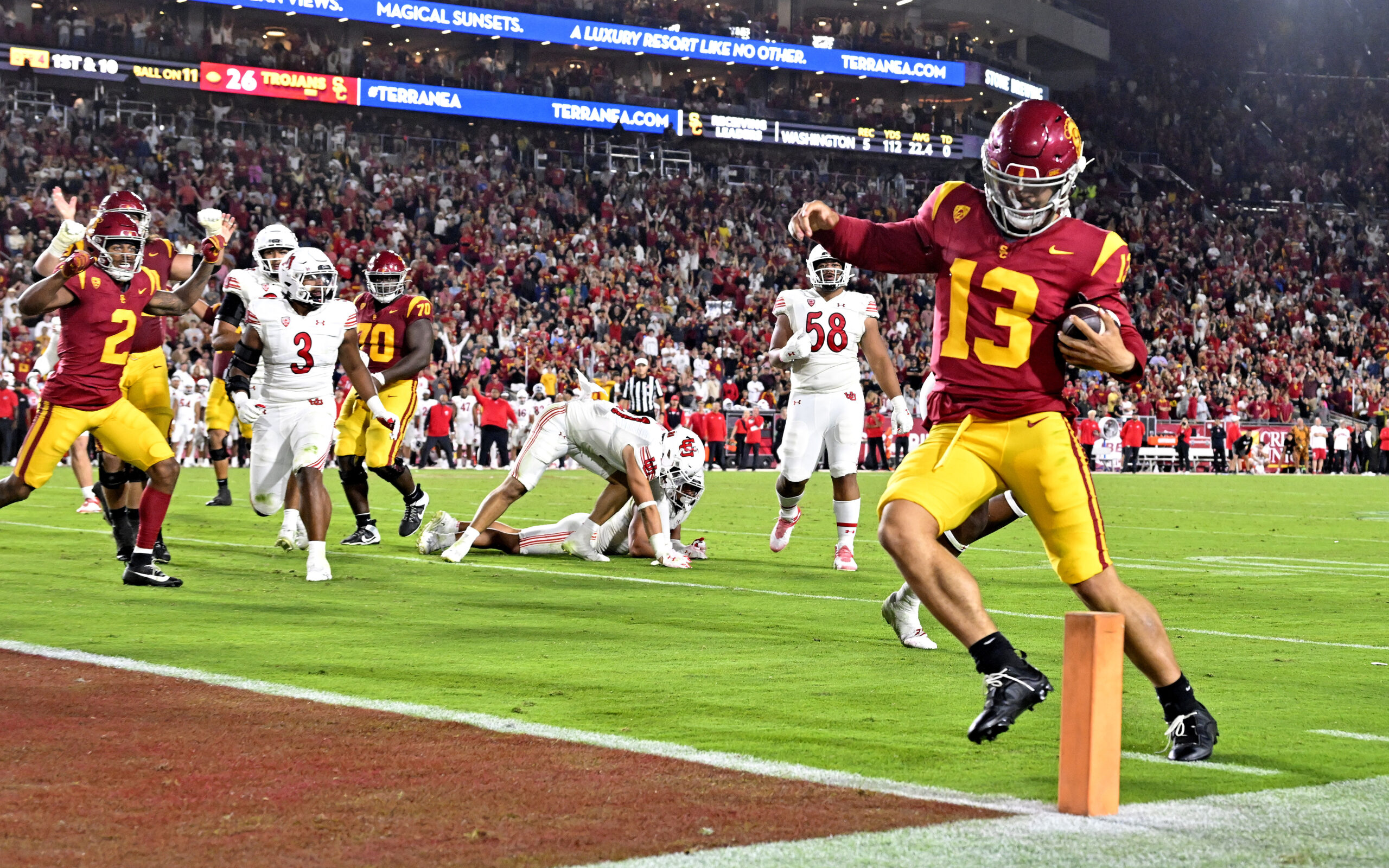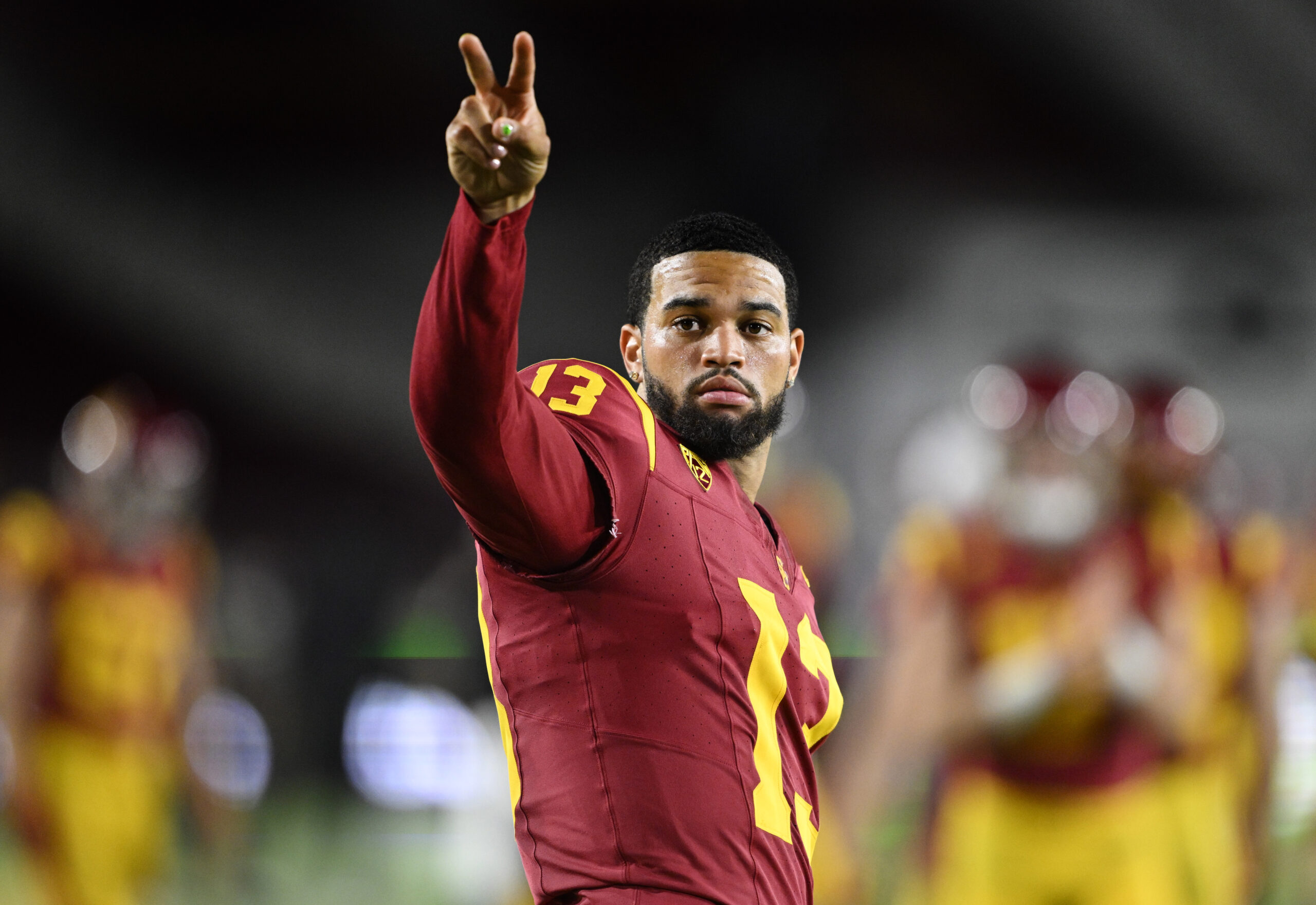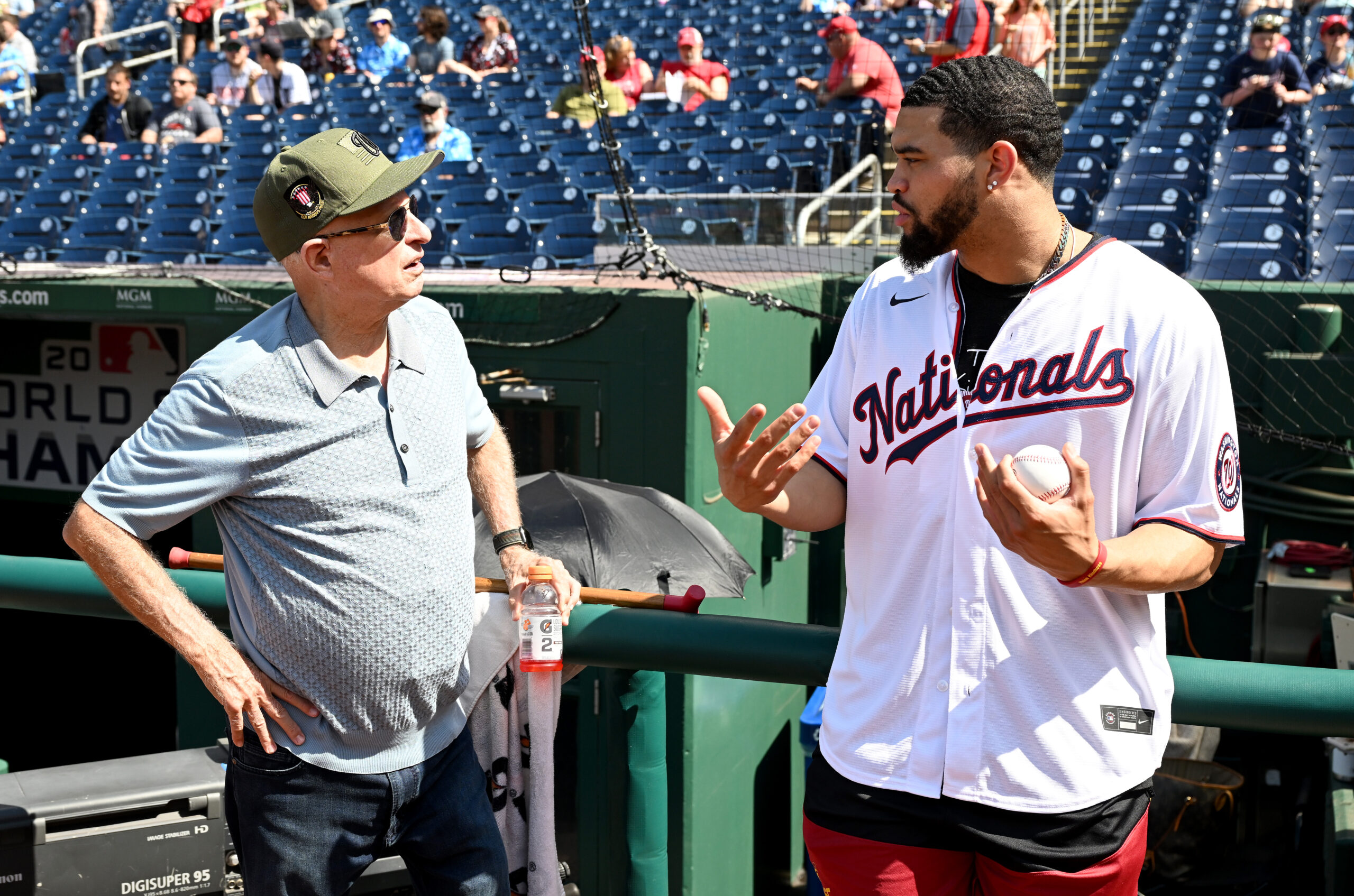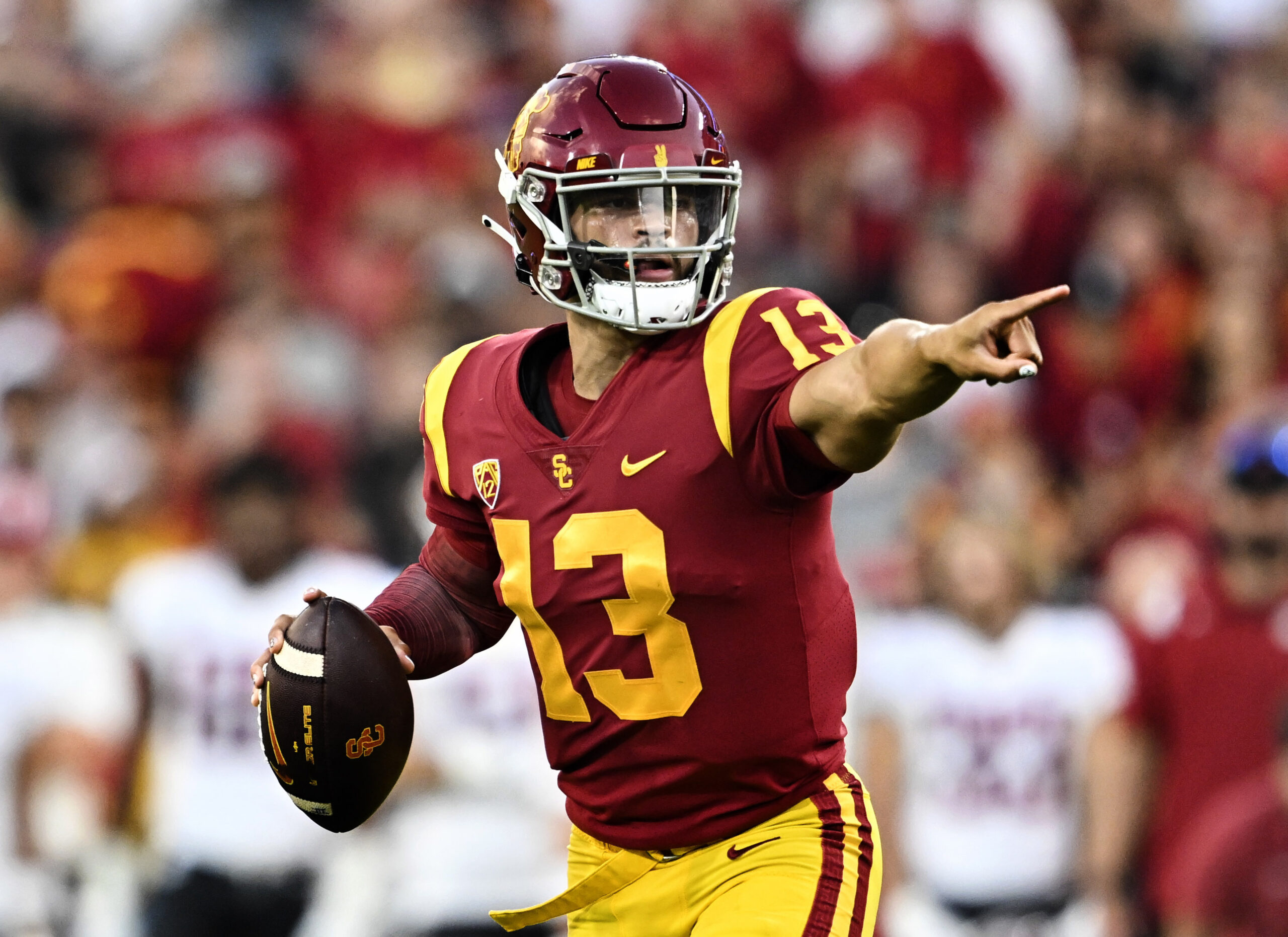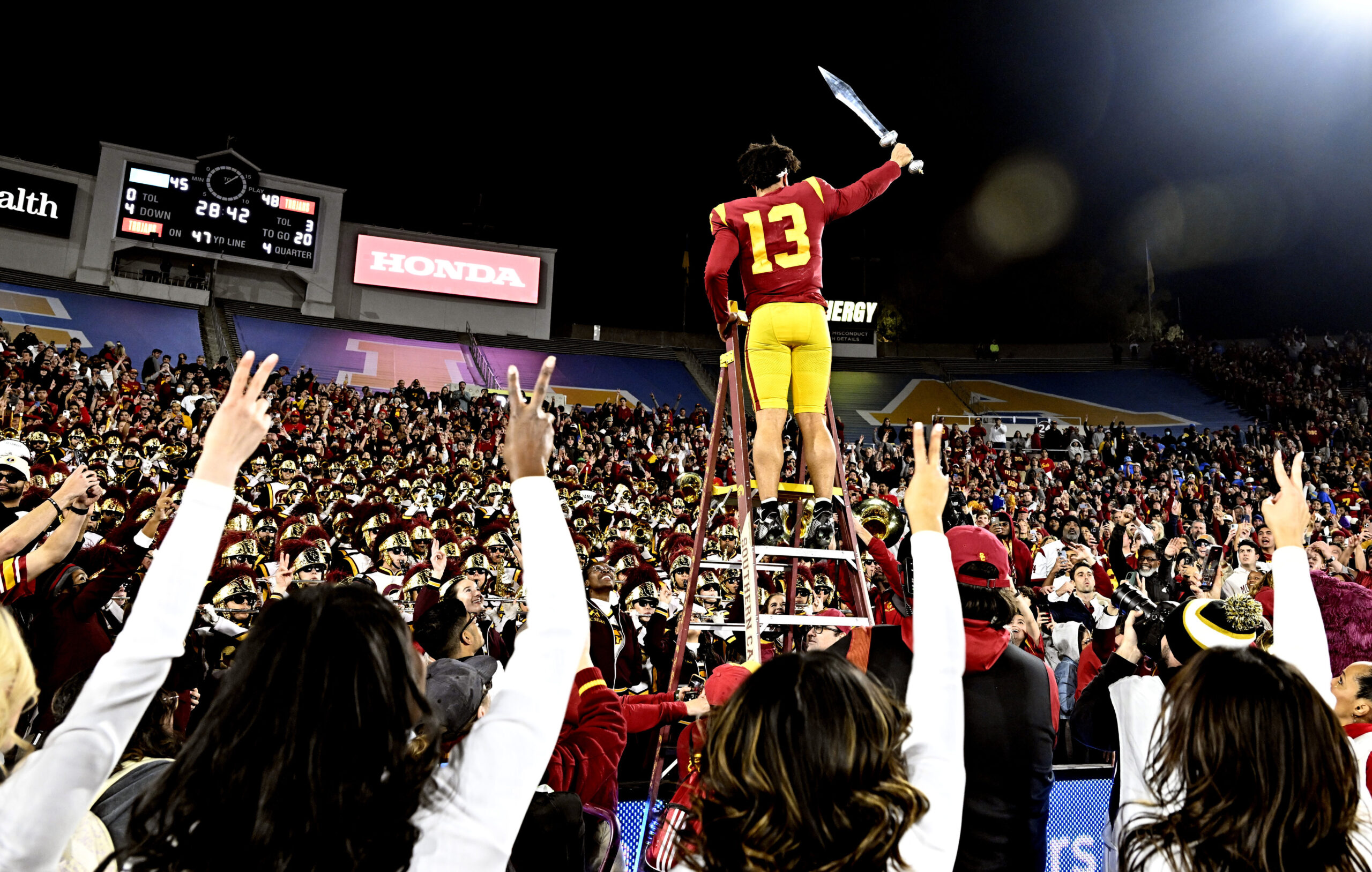All eyes are on Caleb Williams. That much is abundantly clear.
As the Chicago Bears continue pushing through training camp and toward a highly anticipated season, the daily microanalysis of Williams has become supercharged. Every word he speaks is scrutinized. Every practice rep is evaluated. Heck, every time he throws footballs at a net, conclusions are drawn as to where the second-year quarterback may be headed in his career.
Williams knows how much expectation is on his shoulders as the Bears seek a formula for sustained success, something that has evaded the franchise for the last 30-plus years. This feels like a pivotal period in Williams’ development as he unites with first-year coach Ben Johnson to relaunch his career.
After last season’s pronounced struggles — the Bears lost 10 games in a row, fired offensive coordinator Shane Waldron in Week 11 and coach Matt Eberflus 18 days later — Williams has had to reset, both mentally and with some of the ways he handles his quarterback responsibilities. The grand hope, of course, is that this season becomes an express lane toward stardom for the 23-year-old, especially with Johnson on board to help with the navigation.
But the climb remains steep and treacherous. And some of Williams’ sloppiness during training camp has awakened the quarterback anxiety for which Chicago is so well-known.
When the regular season arrives next month, Williams will have a chance to own the stage. In a recent sit-down with the Tribune, he talked at length about his union with Johnson, his development and his outlook for this season.
Here is the meat of that conversation, edited for clarity and brevity.
You let out a howl of excitement when Ben was hired. That was obviously something that resonated with you. When you go back to that moment six-plus months ago, what was behind that howl and that initial excitement for you?
That was six months ago already? Man.
But, yeah, I was excited. Excited for a fresh start in a way. And then I’ve had friends on that other team (the Detroit Lions) and people I’ve spoken to who spoke highly (of Johnson). You watch some of those guys over there and the way they went about their business when he was with the other team, and the excitement comes from that.
Obviously playing versus him, and then hearing about how he was, was positive. Everything I heard from someone like Amon-Ra (St. Brown) or even Jared (Goff) was positive. Jared and I actually saw each other at an event, and we sat down and talked. And he was just like, Ben’s great. He’s going to be tough on me. He’s going to show me the way and teach me certain things. And I just have to apply myself and go get it.

What was it like hearing all that from Jared?
It was good. He’s a guy who was drafted early and went to the Rams and had his stint there and then went to the Lions. And in two years, three years, he’s a top dog in the league. He’s balling. And it looks like he was having fun and learning.
So now, for him, even without Ben there anymore, I think he’s going to be fine. Because he learned so much and he knows the details. And all the things that mattered are still going to matter to him. So it was exciting to hear that from him and how Ben is going to be for me, what he’s going to be for us.
In the time working with Ben, what gives you the trust that your development is in good hands? What are some of the specifics of that?
Honestly, it’s just the details and how hard he is on me. Then you go out there and you try and perfect those details. And you may not perfect them. But when you actually go out and follow those details to a T, you see that it works. So that builds confidence for yourself, for the team, for the offense.
And when you have that confidence, you can go out there and you can play well and build that confidence. And it kind of goes back to the Deion (Sanders) saying: Look good, feel good, play good. The confidence is there. And that’s what we’re working toward.
One of the things we’ve come to realize with Ben is how sharp his competitive edge is. You said when you first met him in January that you saw a fire in his eyes almost instantly. What did you notice initially?
I love it. I mean, every time we speak and it’s just me and him, it’s always about something competitive. Which I love because I feed off things that are competitive. I feed off people who are competitive. I feed off of games. Honestly, whether it’s card games in my free time or I’m out here in the fourth quarter trying to go win a game, I love anything that’s competitive. And having people around you who have the same kind of mindset and thrill for competitiveness is very refreshing. It’s nice in that sense.
The fierceness in his eyes is what I first saw on that first day we spoke. And it was the truth that he told about what we’re going to be and how I need to be for this team. I’m still striving for that, and we’re going to keep striving to be that.
With your feet on the ground a little more heading into Year 2 than they were in your rookie year, what have you learned about sharpening your habits and preparation routines?
It’s going to be a constantly evolving thing throughout, hopefully, the next 18 years, 19 years. You know what I mean? But that’s always going to be a thing. It’s always going to be important to sharpen those habits. It’s always going to be something that I do every single year. It’s something that happens in college from your first year to second year.
And then, years on, you become more comfortable with offensive schemes. You become more comfortable with defensive schemes. And then you tie all that into your plays — your feet, your eyes, knowing defenses — and things get a lot easier. And it’s not that they become easy, but you get more comfortable. You start being able to see things before they happen.
And I’m working my tail off to try and get to that point as fast as possible so that it doesn’t have to be four years from now. It could be this year. Or next year. Or whenever it happens, it happens. But I’m striving for that. And I know a bunch of guys are striving to be able to feel and see things and go out there and be confident.
Are there things you’ve altered or added to your routine where you feel like, “OK, this is going to help”?
Yeah. It comes all the way down to the details of your notes. How you write notes. And ultimately how clear your notes are. That doesn’t mean like chicken scratch to clear (handwriting). It’s more like, what are the specifics of what you’re writing down? And why? And it goes down to the nitty-gritty of certain notes.
Then you just see what works best for you in learning and finding that rhythm. And then once you find that rhythm and the way you learn best, it’s about being able to then go out there and execute the play, even if you got that play two hours ago in the meeting room. Everything’s important.
It has been in your scouting report since you were a kid that you’re a hungry learner and you want a ton of information. How stimulating is this process to now have Ben and what they say is a firehose of information coming at you?
That’s great. Because it helps me to know where I need to be for things that I’m not getting. It also helps me build confidence. Because I’m not in the process right now of being results-driven and results-based. I’m in the constant mindset of being process-based right now. I’m in the process of thinking first: Let’s get everybody firing off the ball with all 11 knowing exactly what they’re doing and firing off the ball at the same time. And let’s have that killer mindset. That’s where I’m at right now.
And when we’ve we had a few mess-ups with maybe a snap I dropped or something, that’s part of process. Before anything happens really physically, that’s part of process. So it’s being able to first control the things we can control. And those are some of the things we can control. And I think we’ve been getting a lot better. But we have to keep going.

Soon enough the results will matter more. But how do you get yourself in the mindset of ignoring the results at times during camp and just going back and evaluating the process?
It’s actually really tough. Because this job is what it is — it is results-based. If you don’t go out there and produce regularly, you’re gone. And that goes for everybody. But for right now, it’s understanding where we’re at, understanding where I’m at and understanding that right now we do not have to be results-based.
And it’s understanding that the process right now is the most important thing. Because if you control the process and you do the right things in that specific situation before the snap — and even after snap — with the process and reading the keys and seeing this blitz or anything like that, the results are going to come.
I won’t make you revisit last season. But given that experience and how it was tacked on to your last season at USC, you are now three years removed from the high level of excellence you’re chasing all the time. What does that do to your mindset going into this year where it’s been a while since you’ve been in that groove that you want to be in?
It’s good. Because I haven’t always been the guy everybody saw at USC or in the latter parts of my high school career. And so it was good for me last year. It’s something that I needed. Everything has kind of been — not easy, per se — but a lot of it for me has been good. Everything has been actually great.
But then we had last year, and it wasn’t as good. So with my mindset, that is good. It adds a bit more hunger. It adds a bit more want-to to go get it and desire to prove absolutely every single person wrong who goes against me.
When you say you needed that, elaborate on that.
Like I have said, too much good can make a man weak. So having a little bad isn’t always actually bad. So that’s what it was last year for me. I haven’t lost that much ever in my career. Ever. And I needed that. I needed that little bump to make sure I’m in the right mindset for this season and for many more years to come.

Both you and Ben have alluded to the idea that the carryover for you from Year 1 to Year 2 is not ideal or where you would hope it might be. How did you gain acceptance of that, of the idea that, “Hey, we do have to go backward a little first before we make progress”?
Sometimes going backward isn’t bad. Because then you go back to the basics. And when you can start with the basics and not start with a finished product, you’re still at a point where you can go back to the basics and fix a lot of things. It’s like having a dog. At a certain point, you can’t teach a dog how to go to the bathroom outside and be potty-trained. So you better be starting that young enough.
For me, at this point, we’re still able to go back to the basics and fix everything we need to fix. And then I’ll be able to go out there and execute when we’re going to need me to be able to execute.
But was there some frustration with that at least initially? Was it like that Chutes and Ladders concept in which you feel like you’re making strides and you hit a chute and then have to retrace all that same territory?
Absolutely. I mean, there’s definitely frustration. Our first couple days of (training camp) practice were a little bit frustrating for me. Because you put in so much work during OTAs and in the offseason. Then you come back your first day, you’re excited, and you mess up a few things. I think I threw a pick on my first pass of my first team period. So, yeah, that’s frustrating.
But it is about just resetting the mind and understanding we’re not results-based right now. And so following the process and understanding it and believing in it right now is the most important thing for me and also the team.
When you go back through some of your game-on-the-line success last year, what did you confirm about yourself in having three, four, five moments where you were excelling when it matters most?
For me last year, there was that moment that made me realize that I could play in the NFL and be who I really want to be. When I had my first (successful) two-minute drive, it was just, “OK, I can do this.” It was early in the season. It may have been Washington. But we drove down the field, and it’s like, “OK, I can do this.” Just like, “All right, here we go.”
And then from there, two-minute has always been one of my favorite times. Ever since I was young, you don’t feel the pressure. It’s the best moment in the game. Because everything matters. Every single detail, every single throw. If you have enough time and timeouts, it’s every single run depending on the situation and field position. Everything matters. That’s where legends are made: at the end of the game.
Everything comes down to the end of the game in the NFL. So being able to be in those moments and to be locked in and have your guys have confidence that this is our time and we’re going to go win this game is incredible. And if the defense gets us the ball back, we’re going to march this ball down the field and win this game.
Was the last drive of last season appropriate punctuation from that standpoint?
Absolutely. Yeah. For sure.
On the opening day of training camp, Ben said, “This is a race now,” and that there’s an urgency to this. So how are you balancing being the tortoise and knowing how to be slow and steady with also realizing you may need to have some hare in you, too, because Sept. 8 is coming quickly?
It’s a good question. And (passing game coordinator) Press (Taylor) said this to me: The race for us is a marathon. A top-level marathon. And a lot of times when people think of a marathon, it’s like, OK, you have all this time and all this distance and it’s a long race. But, no, if you go look at the guy who runs the fastest marathon, he’s in a full-out sprint, basically from the start to the finish. You know what I mean? So it’s like we know we have a certain amount of time and distance to get this right. But we’re also in a full-out sprint all the way through.
You look at the guy who holds the record for the marathon and it’s like 4-plus minutes per mile. It’s an absurd number. But that’s where we are at right now. We’re in a full-out sprint through this marathon. And it’s not a sprint. It’s not 100 meters. It’s 26.2 (miles). But we’re in a full sprint all the way through. When I heard that, it clicked for me. It was just understanding that we’re not jogging. We’re not like half-speed. We’re full sprint. We’re turning it up all the way through until it hits 8 p.m. on Sept. 8.
Knowing all you have around you with the coaching staff and your supporting cast, what is it that excites you most about the 2025 Bears?
The guys are out here working. And it seems like the guys are having fun. And those are the two most important things we can do right now. We go out and work our tail off on the grass and in meetings and in treatment and all these different things we do. And then we have fun doing it.
So this has been fun for me. You’re watching the other guys, talking a little trash to other guys and you get it all going.
